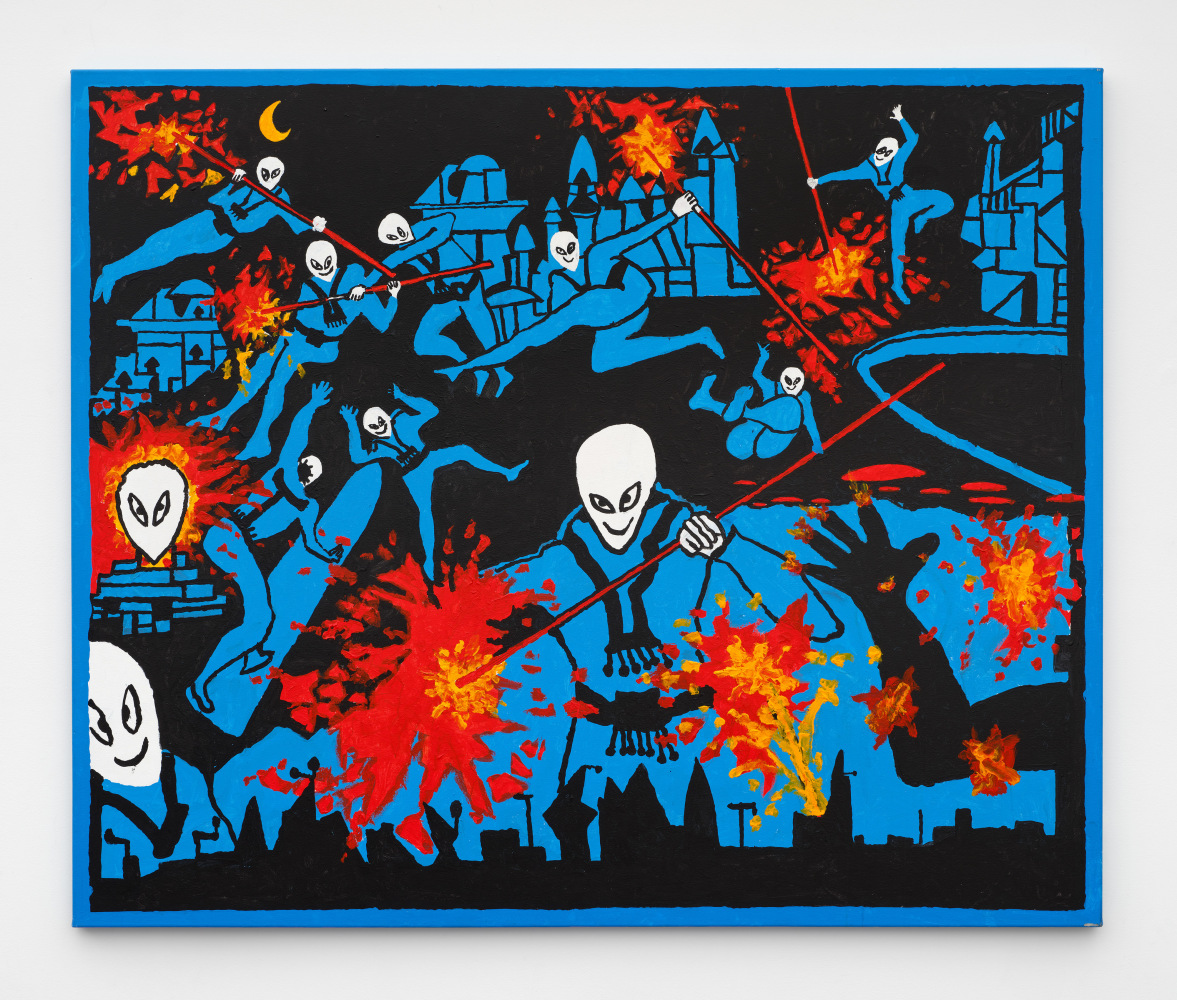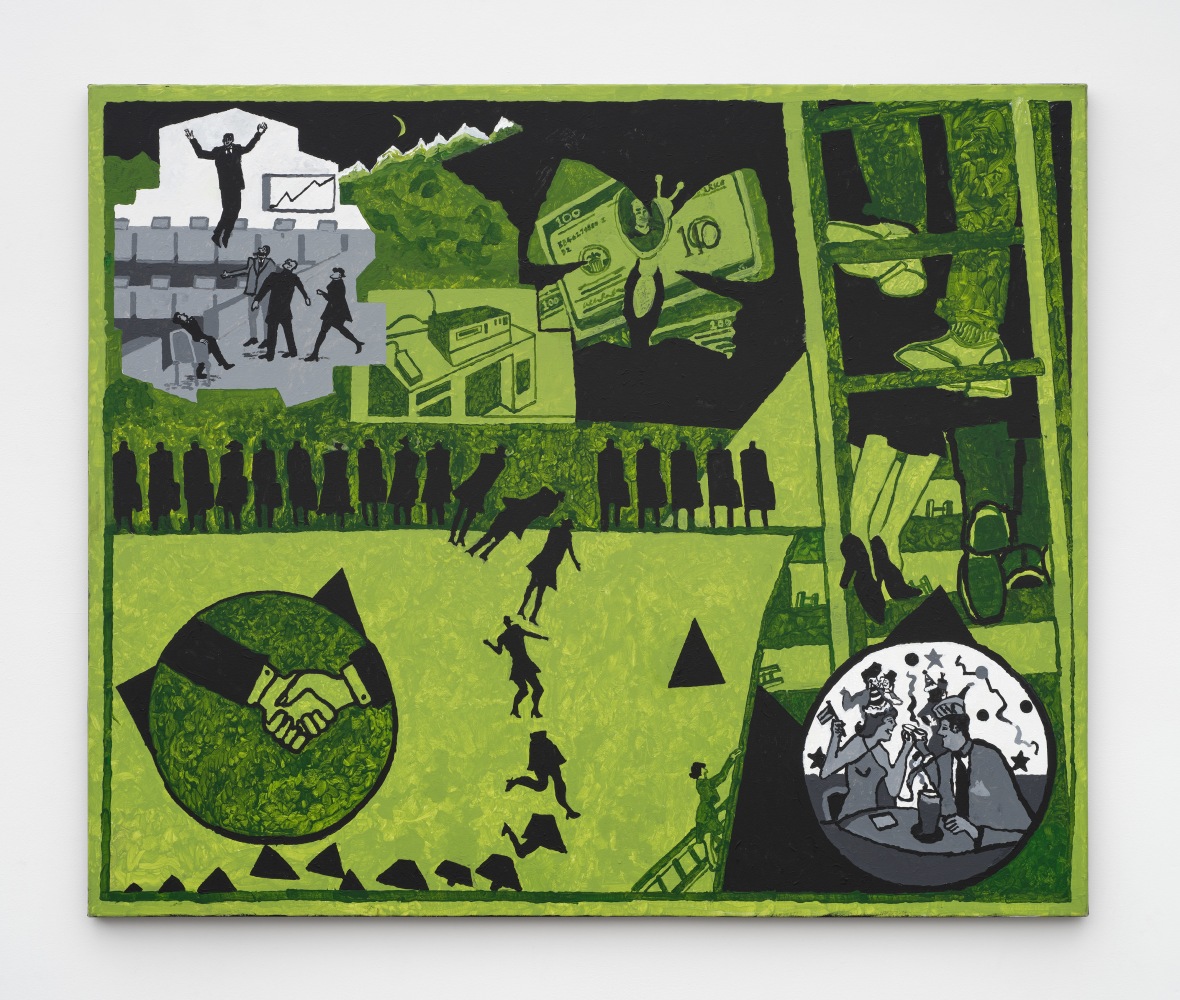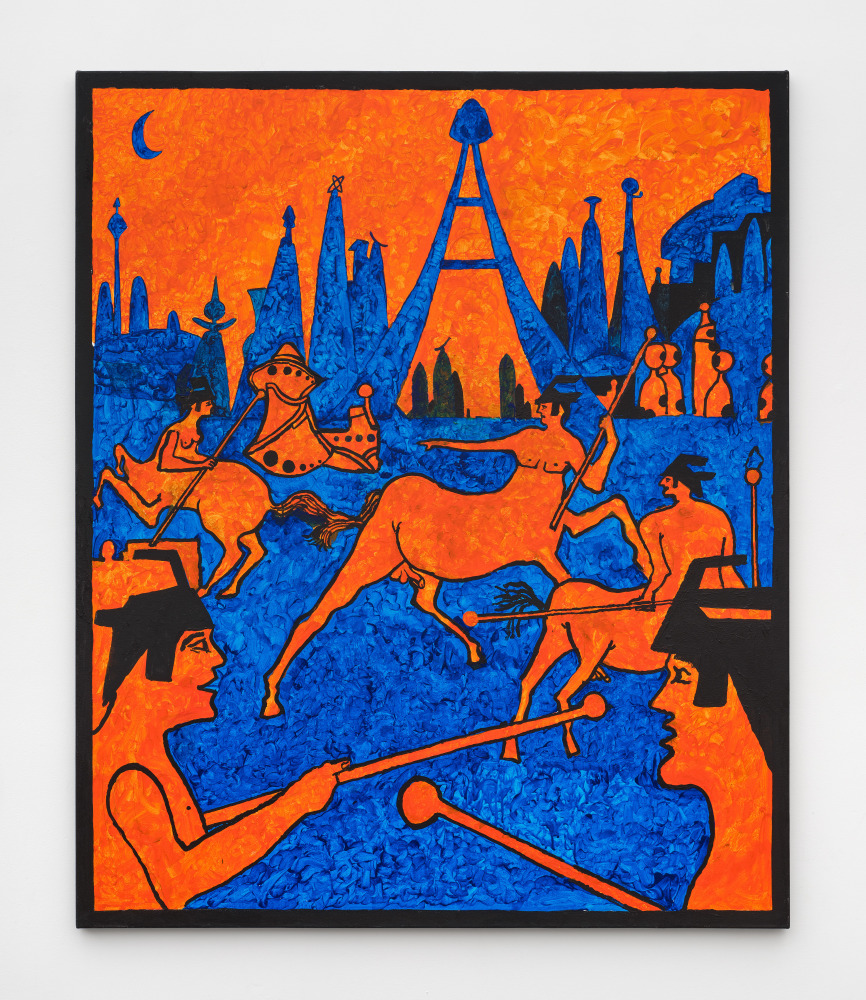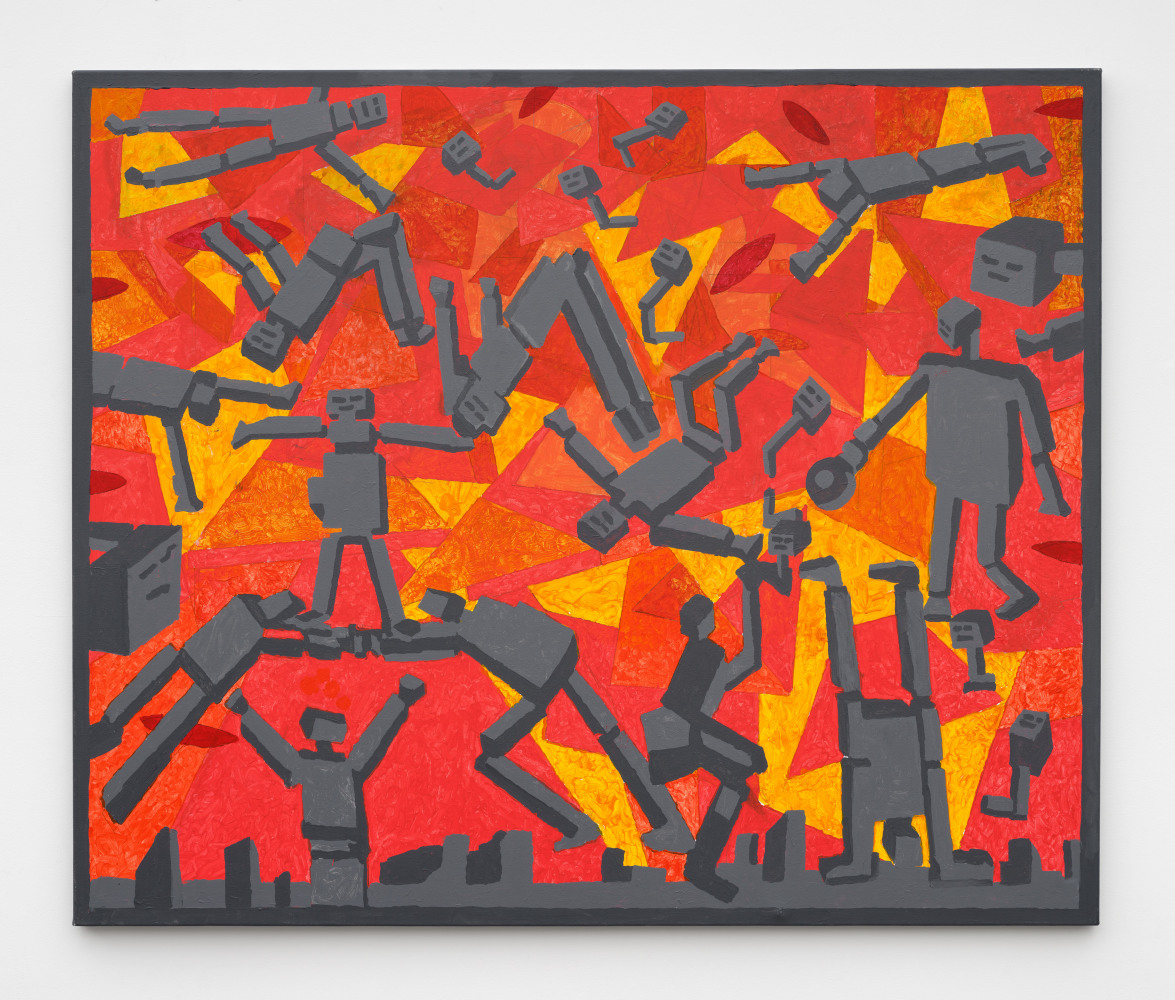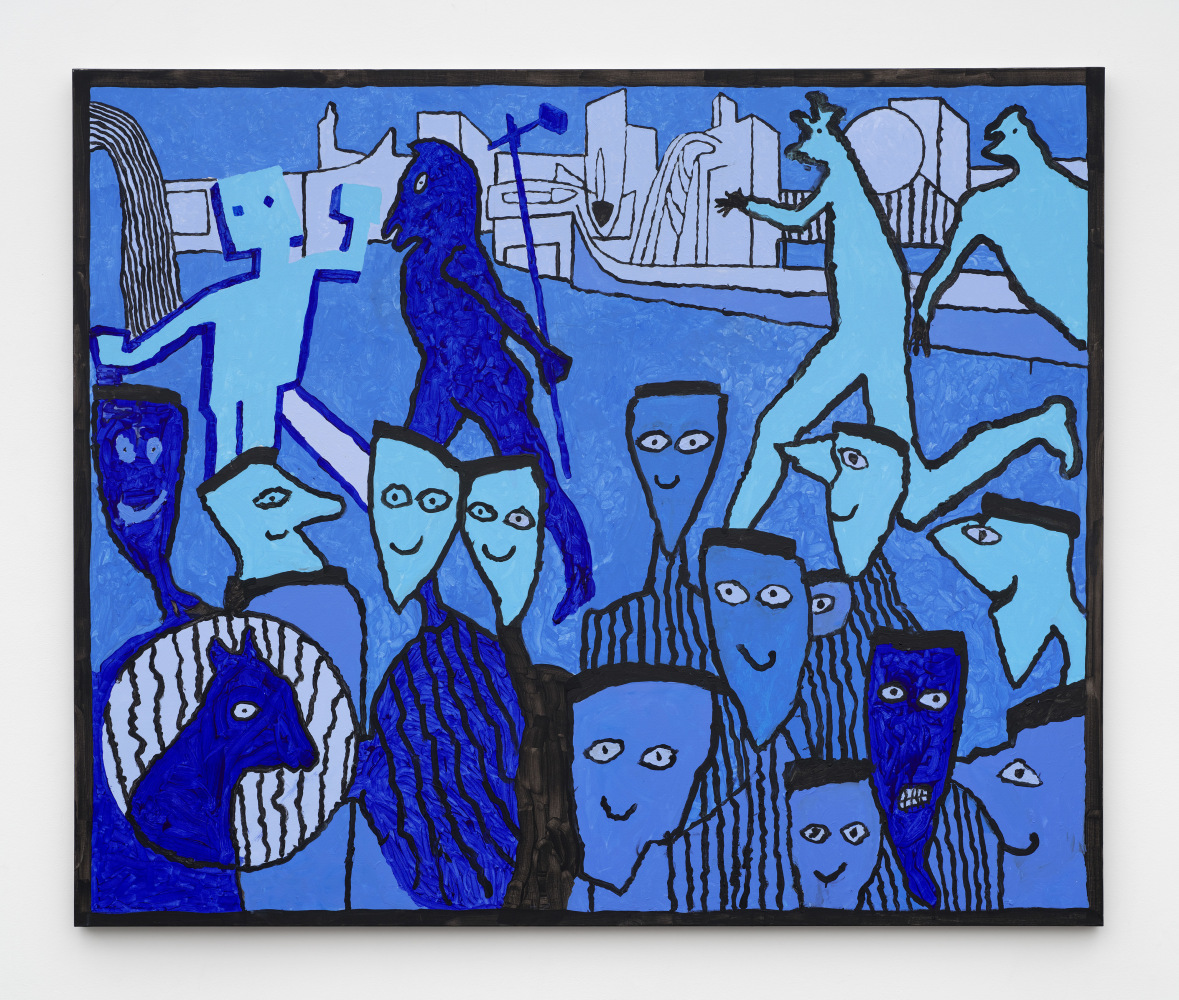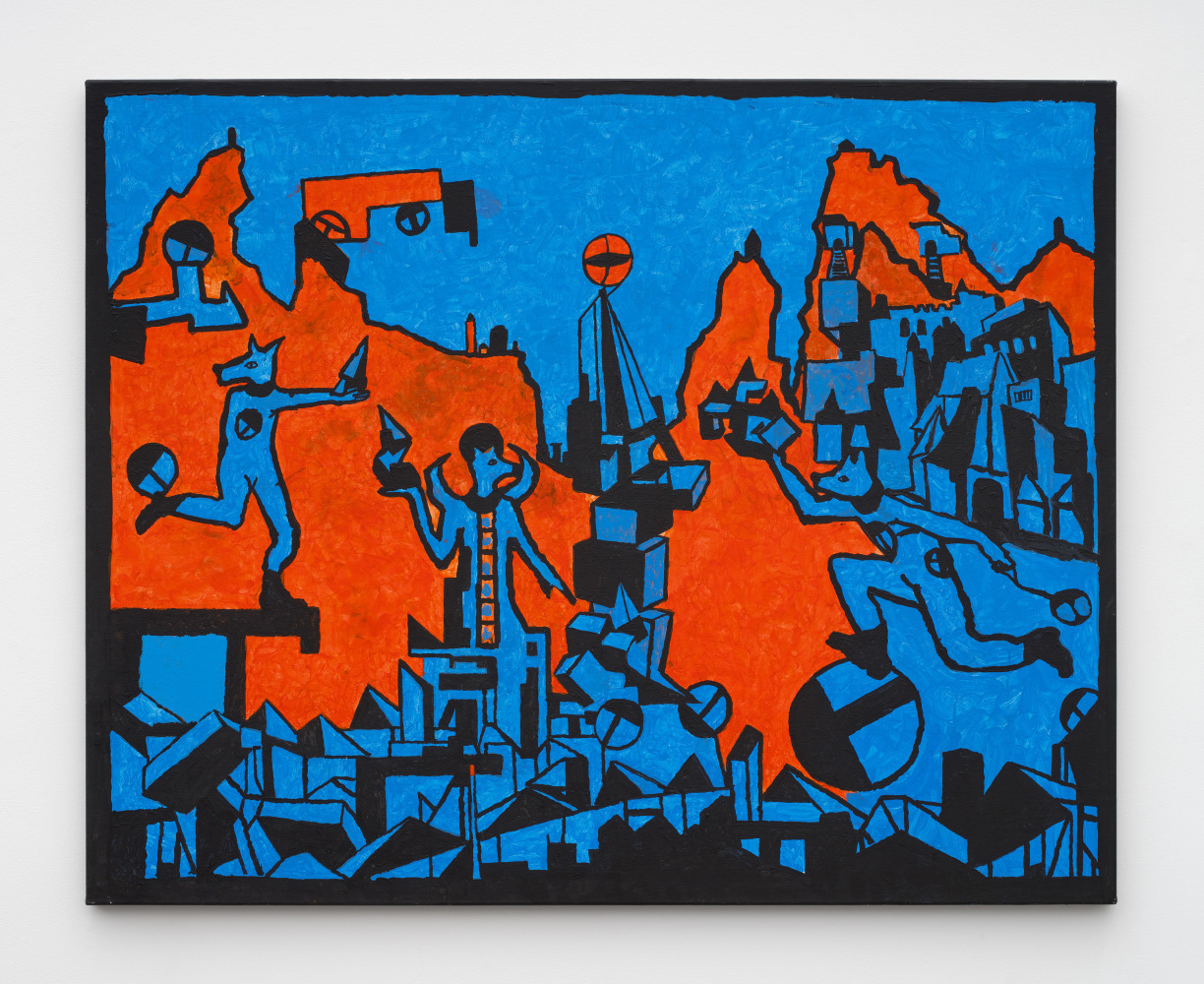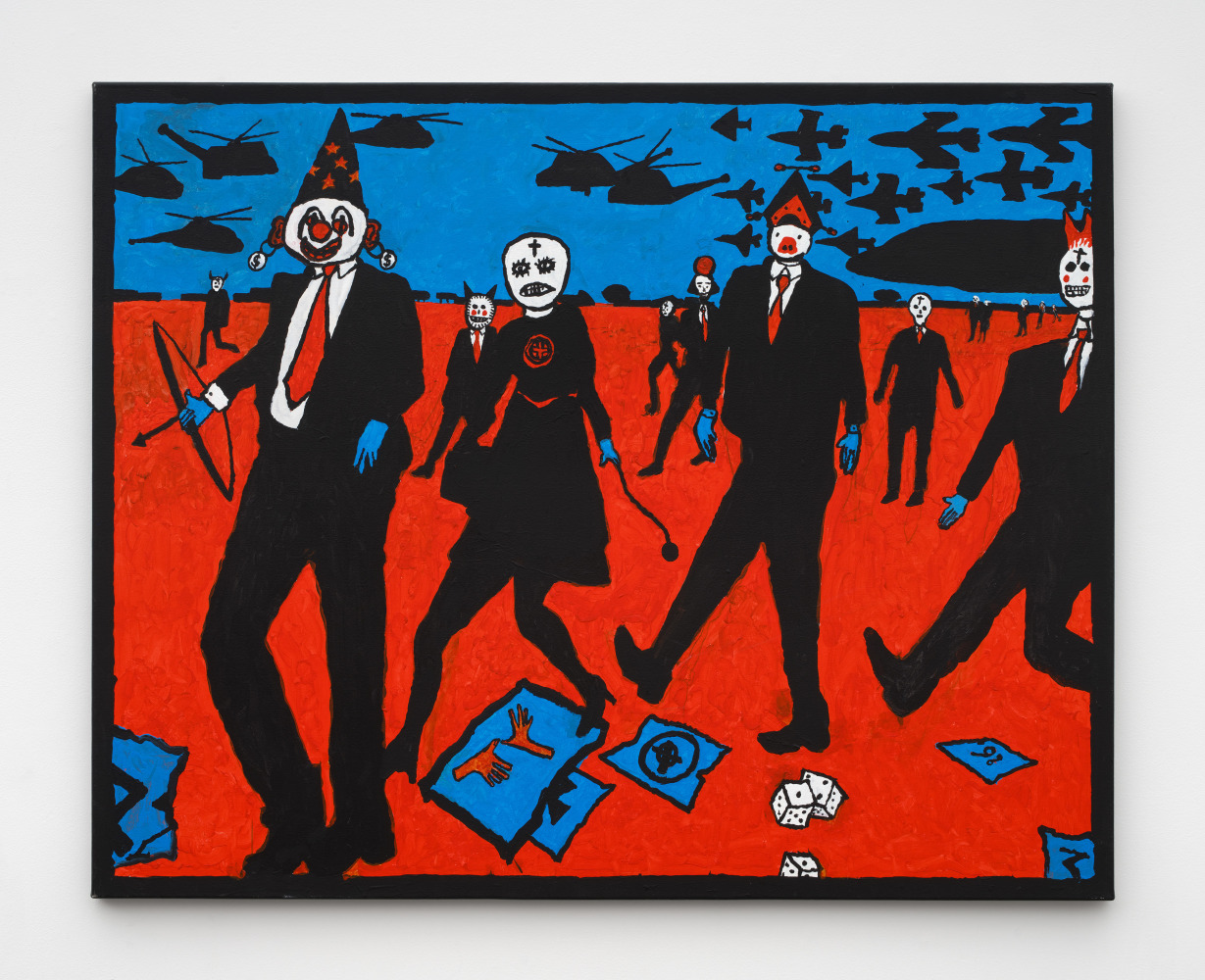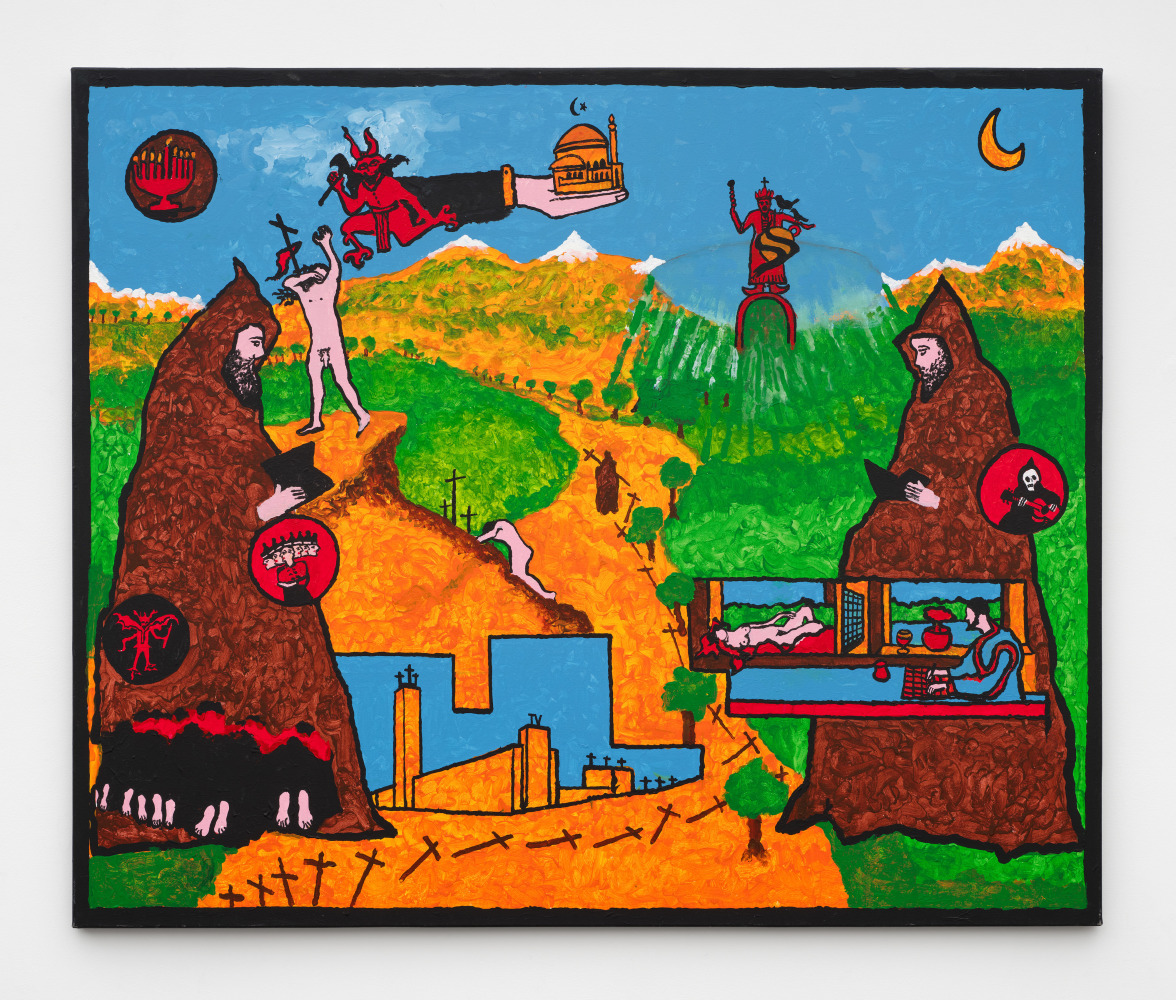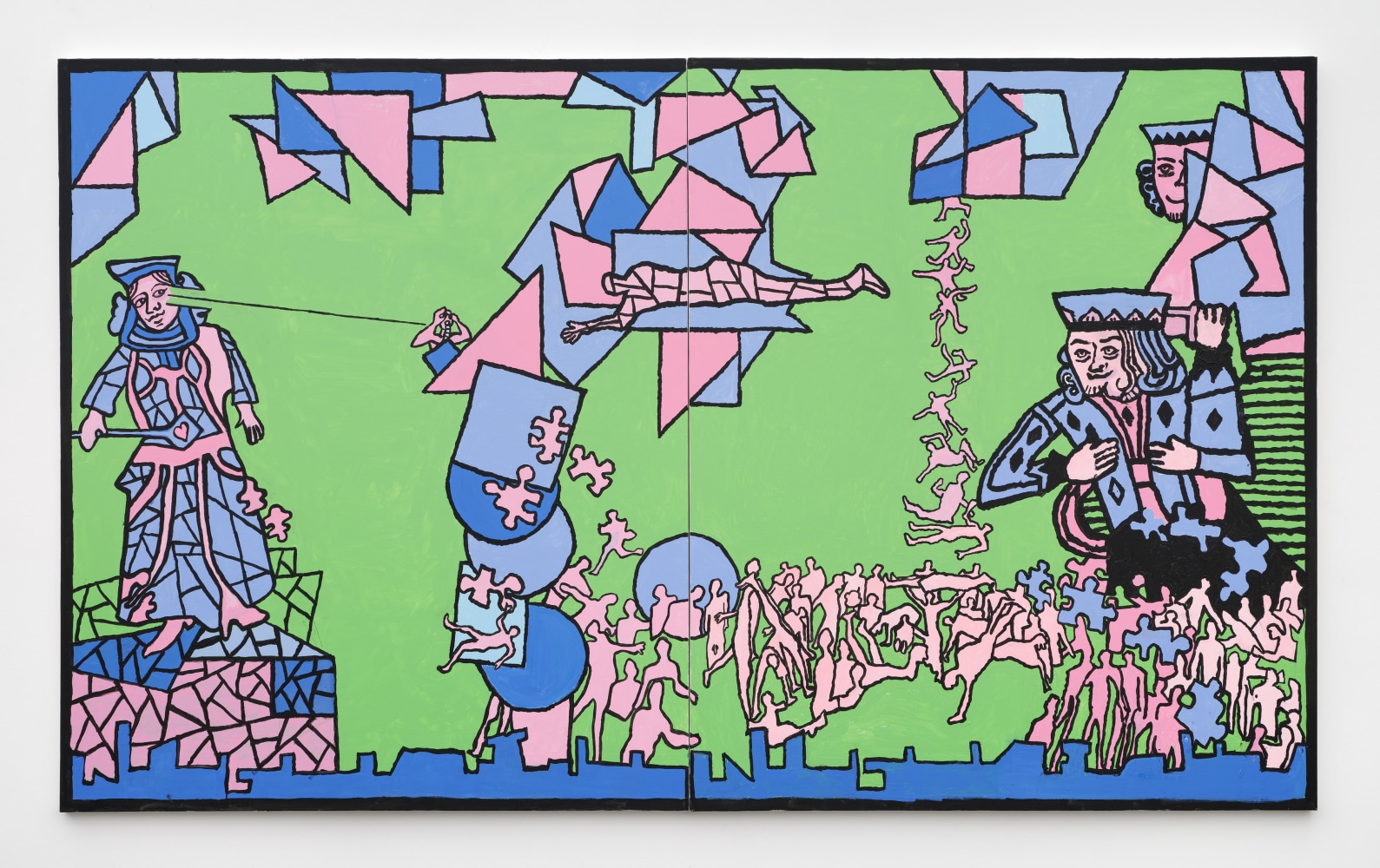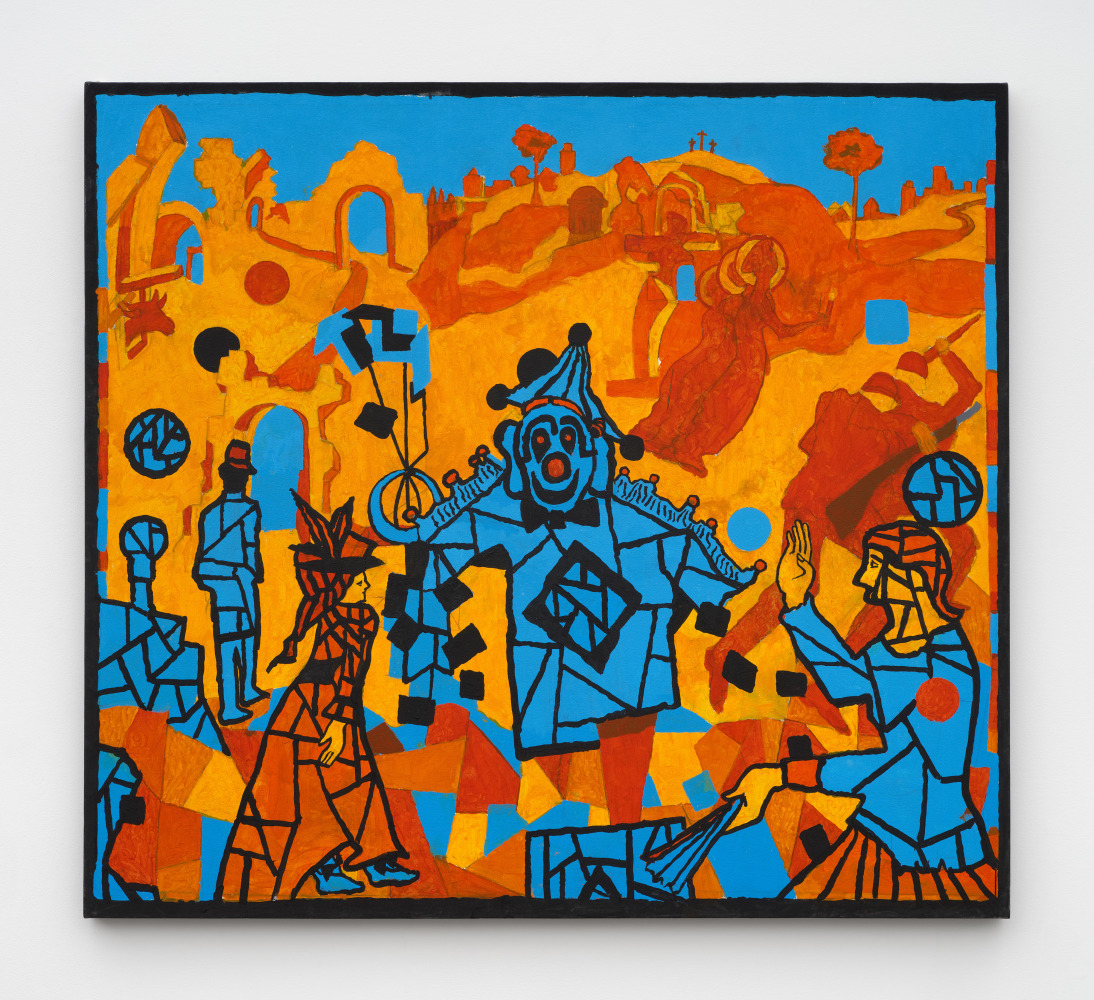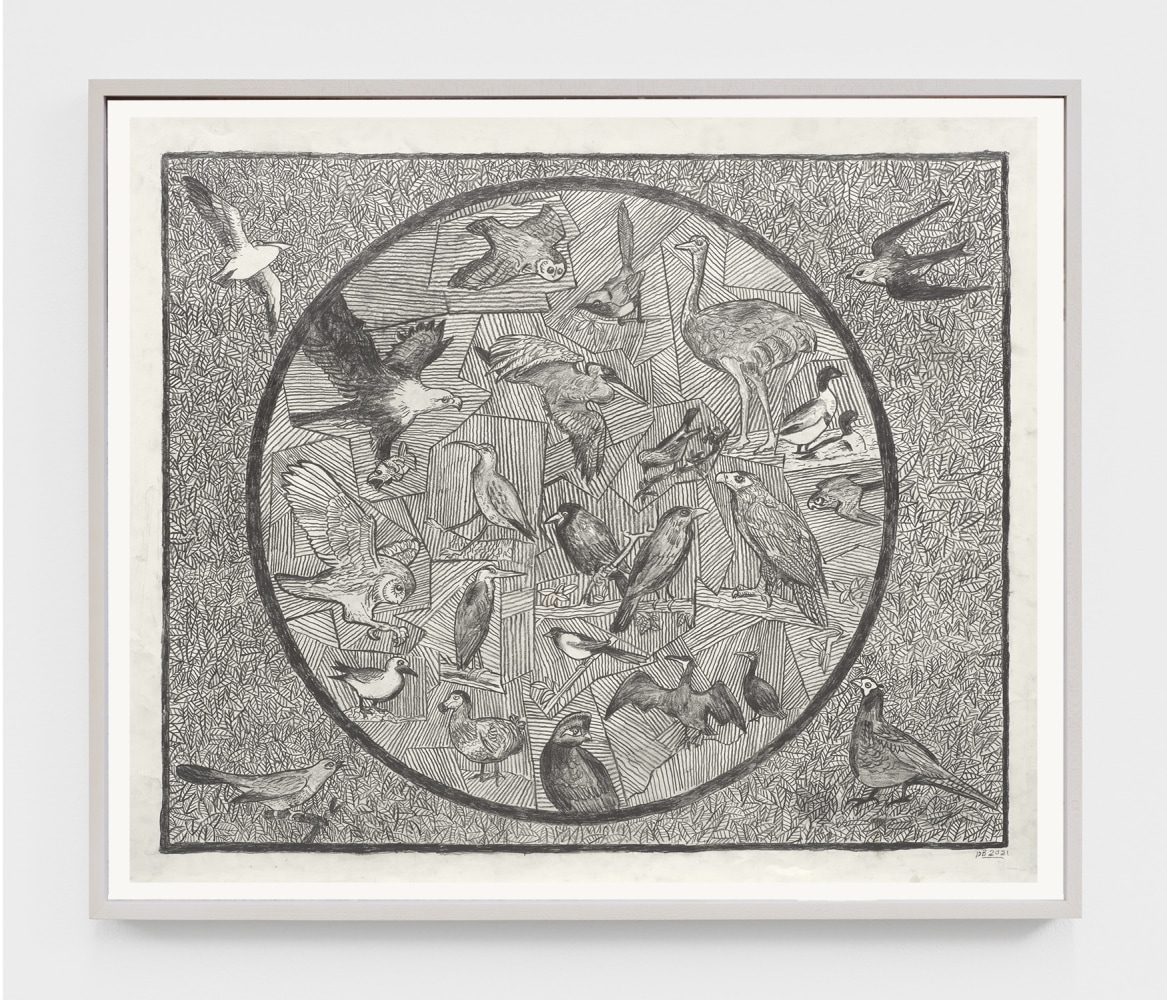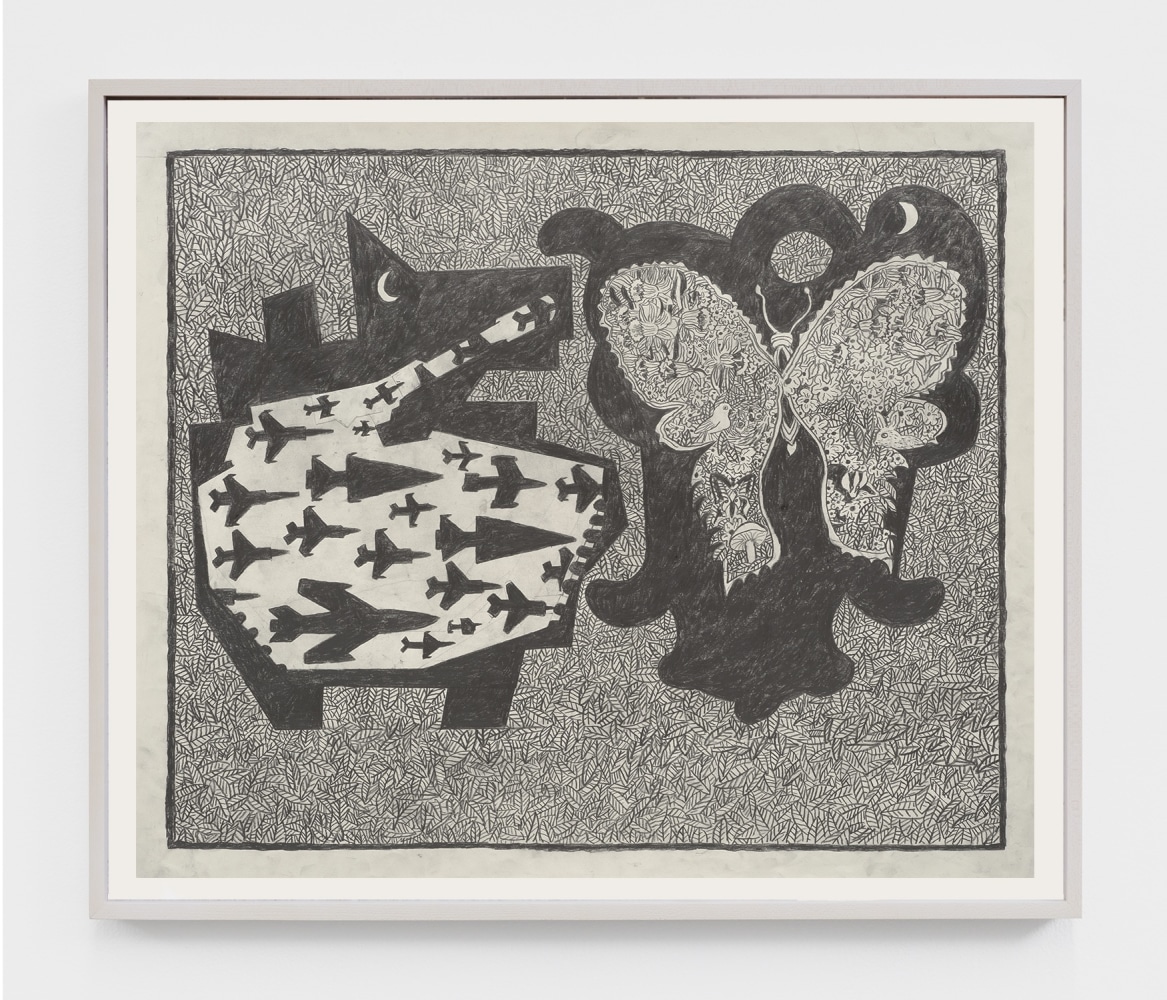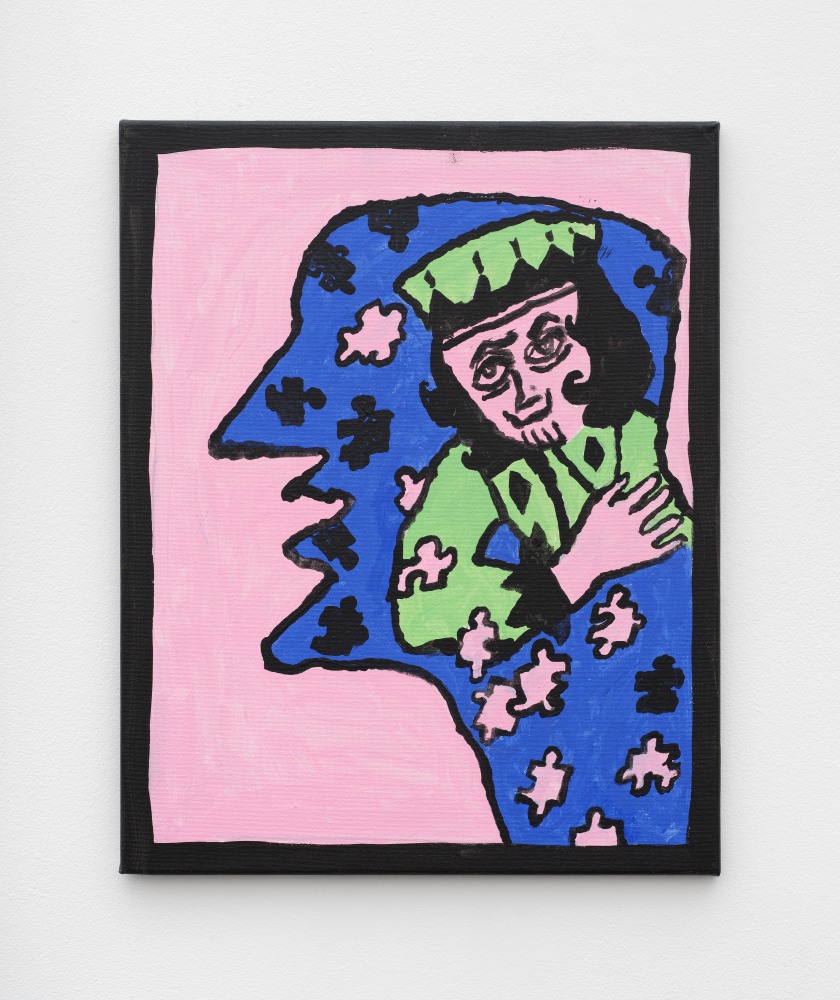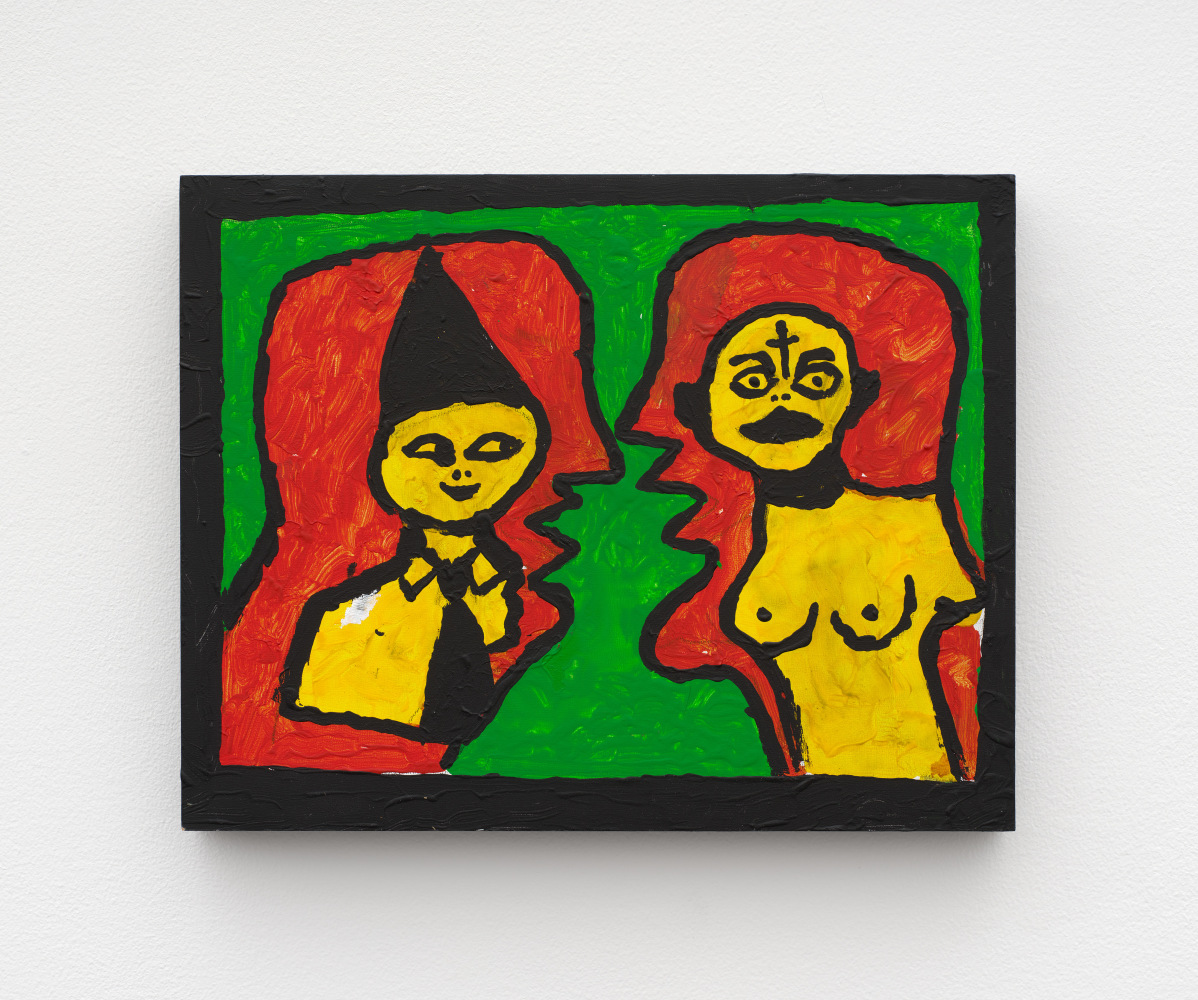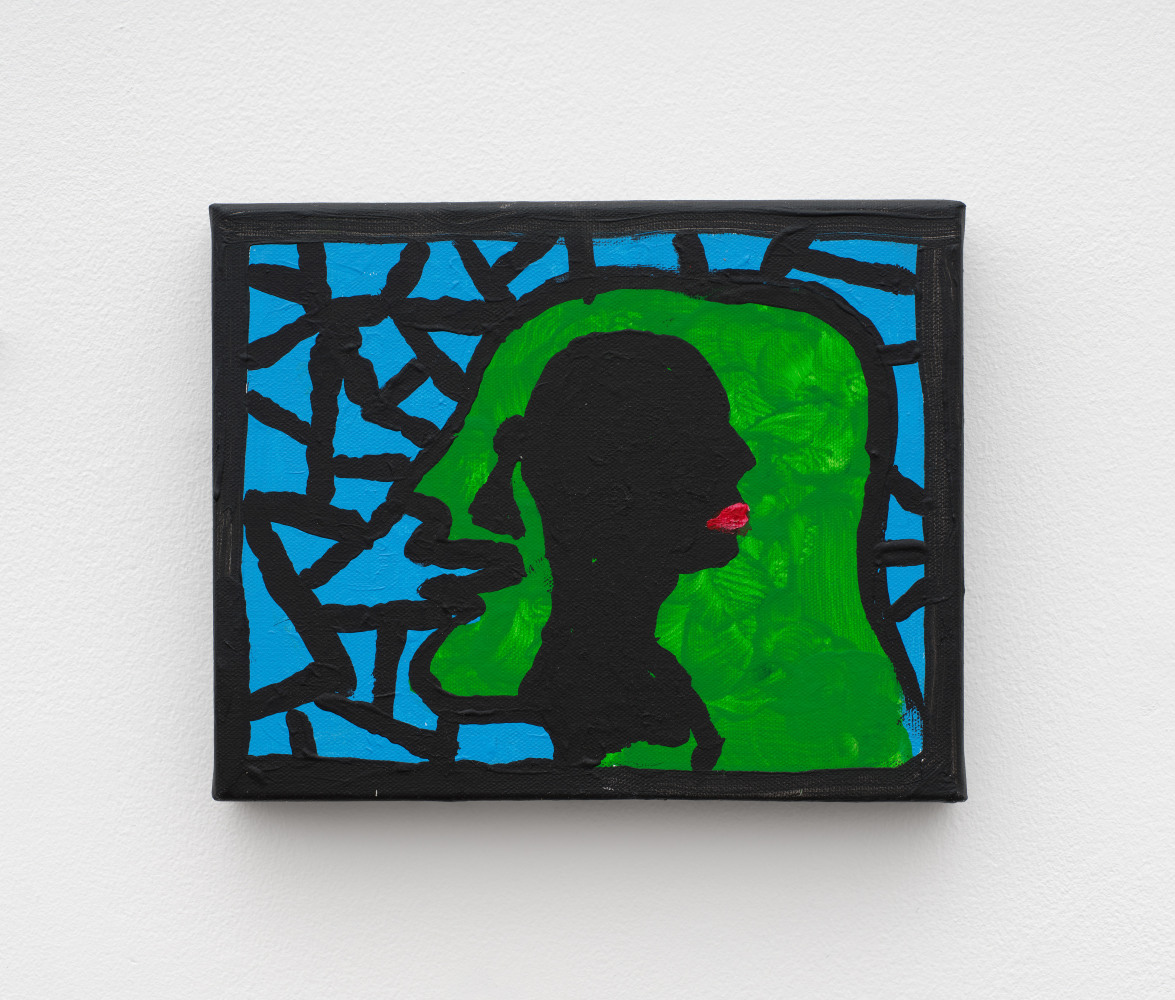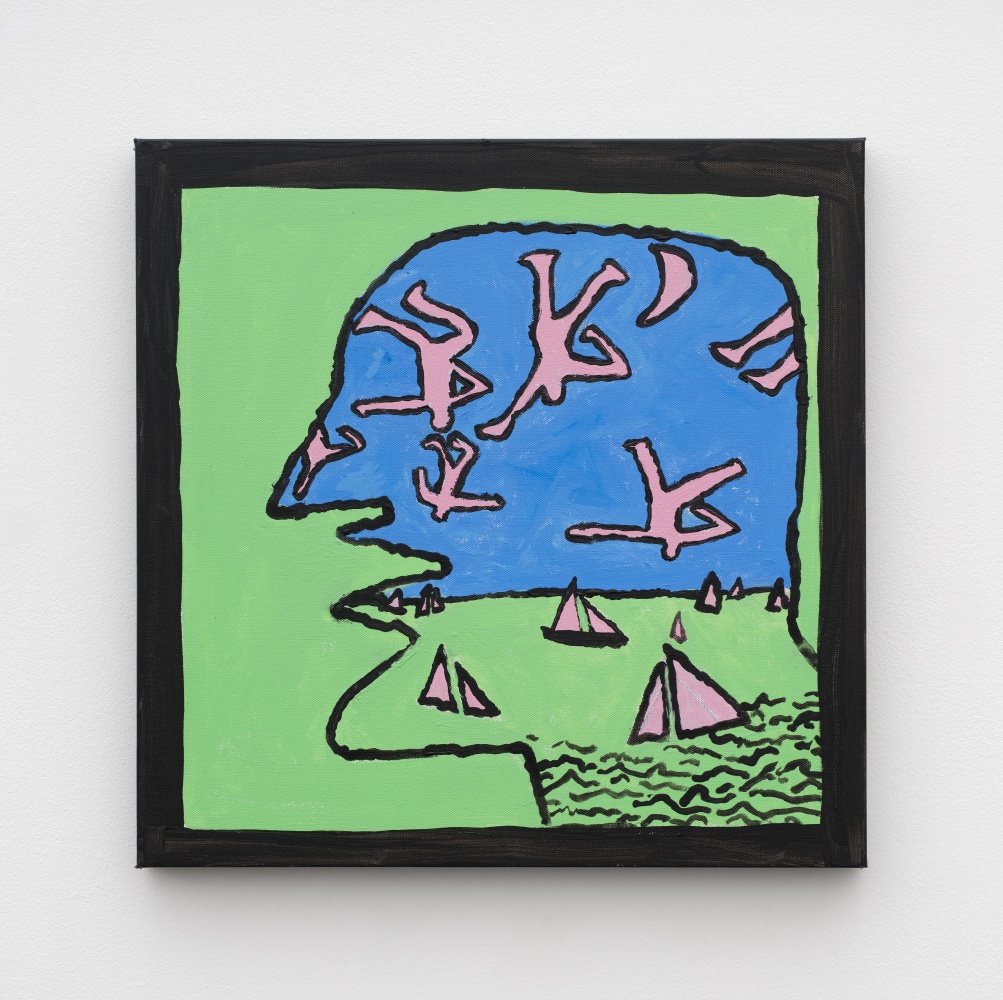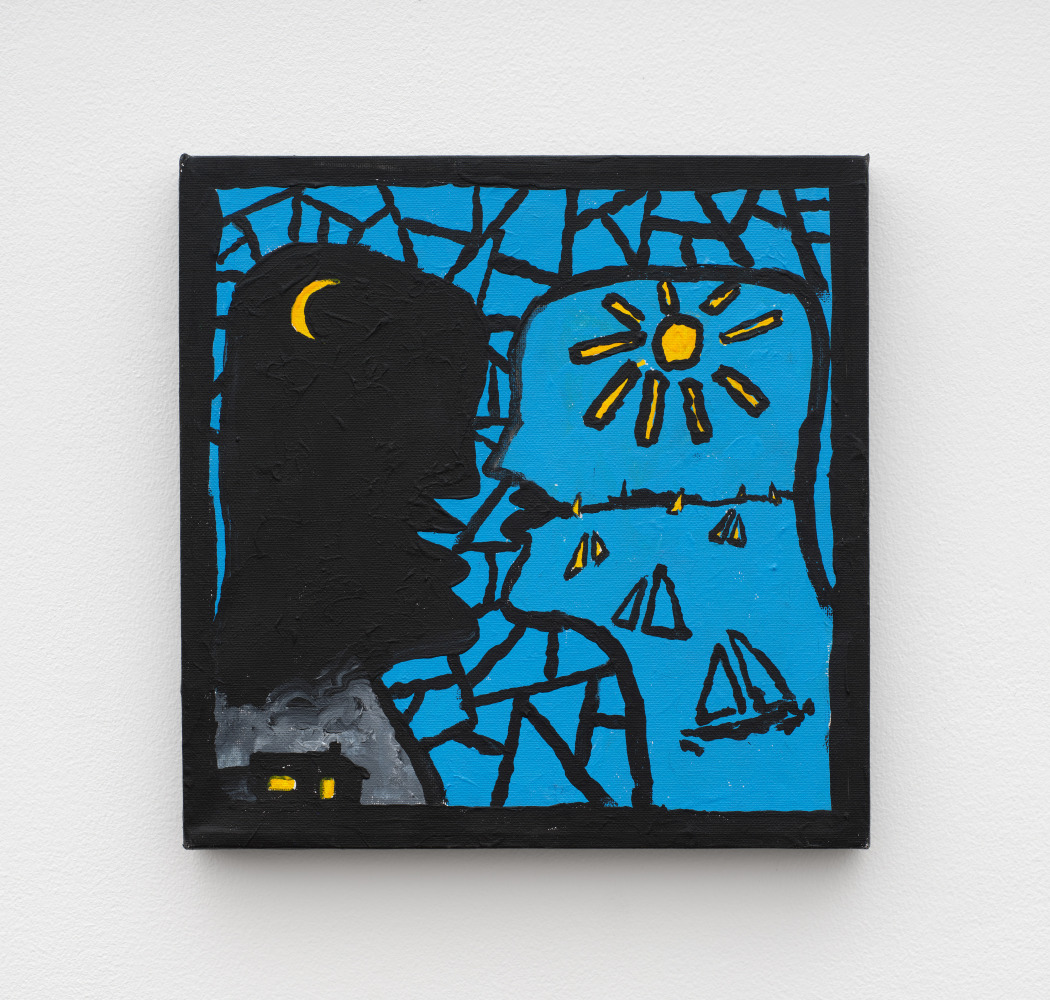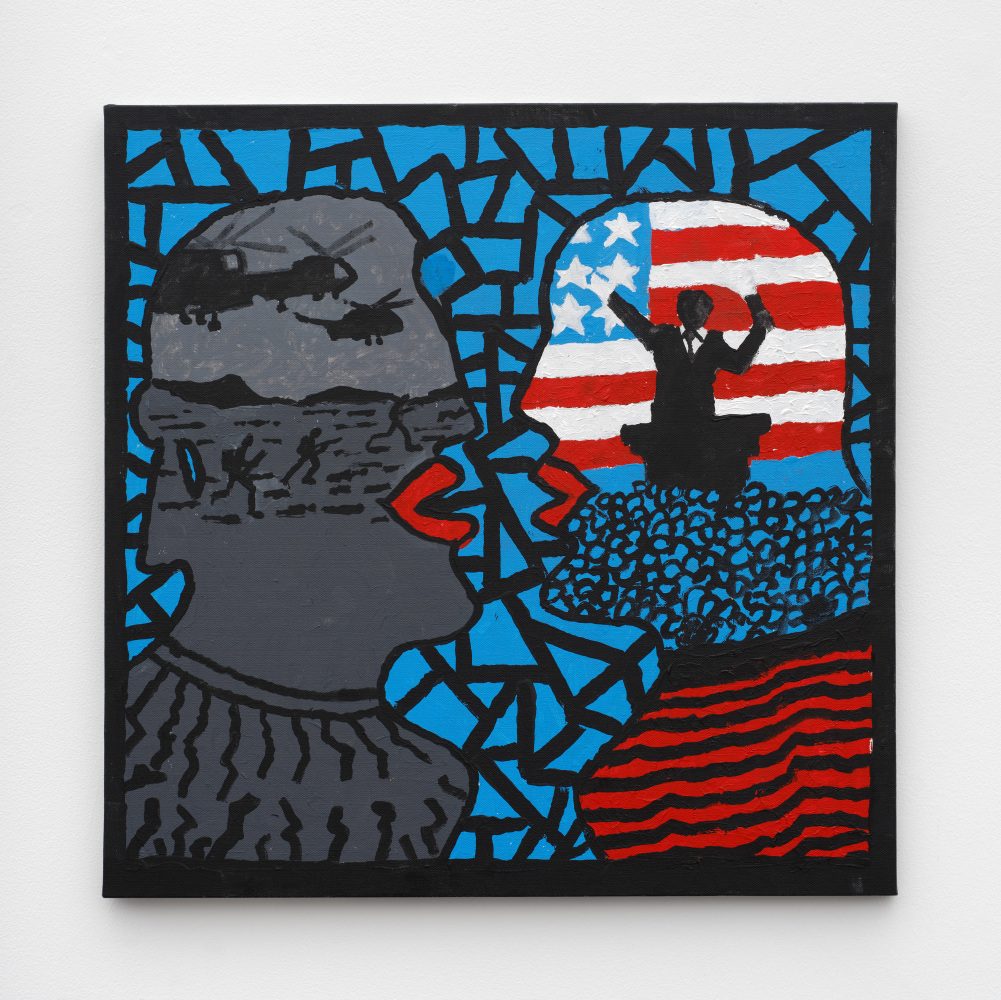Night Gallery is pleased to announce Strange Lands, an exhibition of new work by Derek Boshier. This is the artist’s fourth presentation with the gallery, following Headlines (2021), On The Road (curated by Jamie Kenyon, 2017), and Journey/Israel Project (2014). Boshier's work served as the inspiration for the group show Cogwheels Carved in Wood (curated by Jonathan Griffin, 2014).
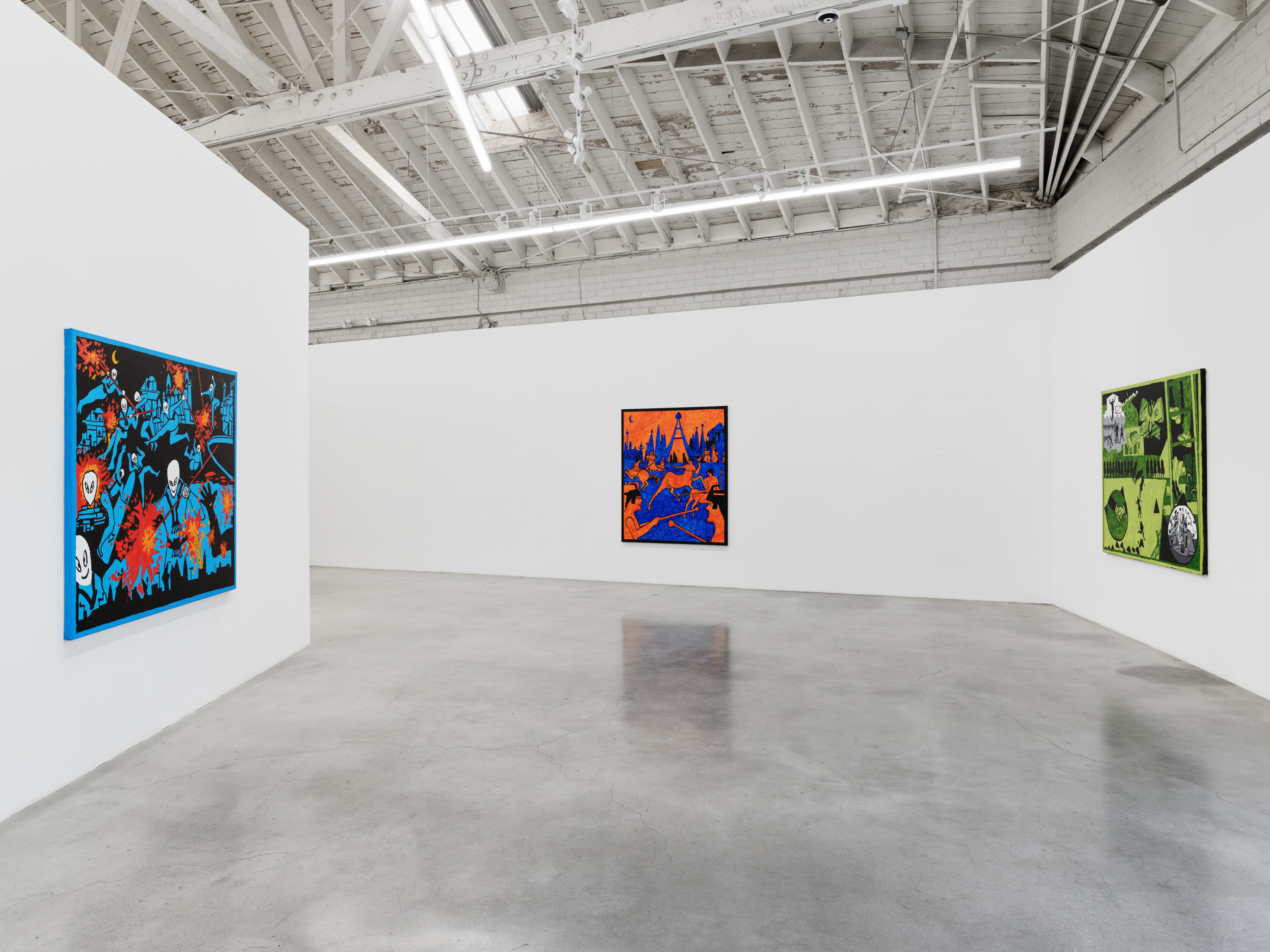
Derek Boshier, Strange Lands, installation view, 2024
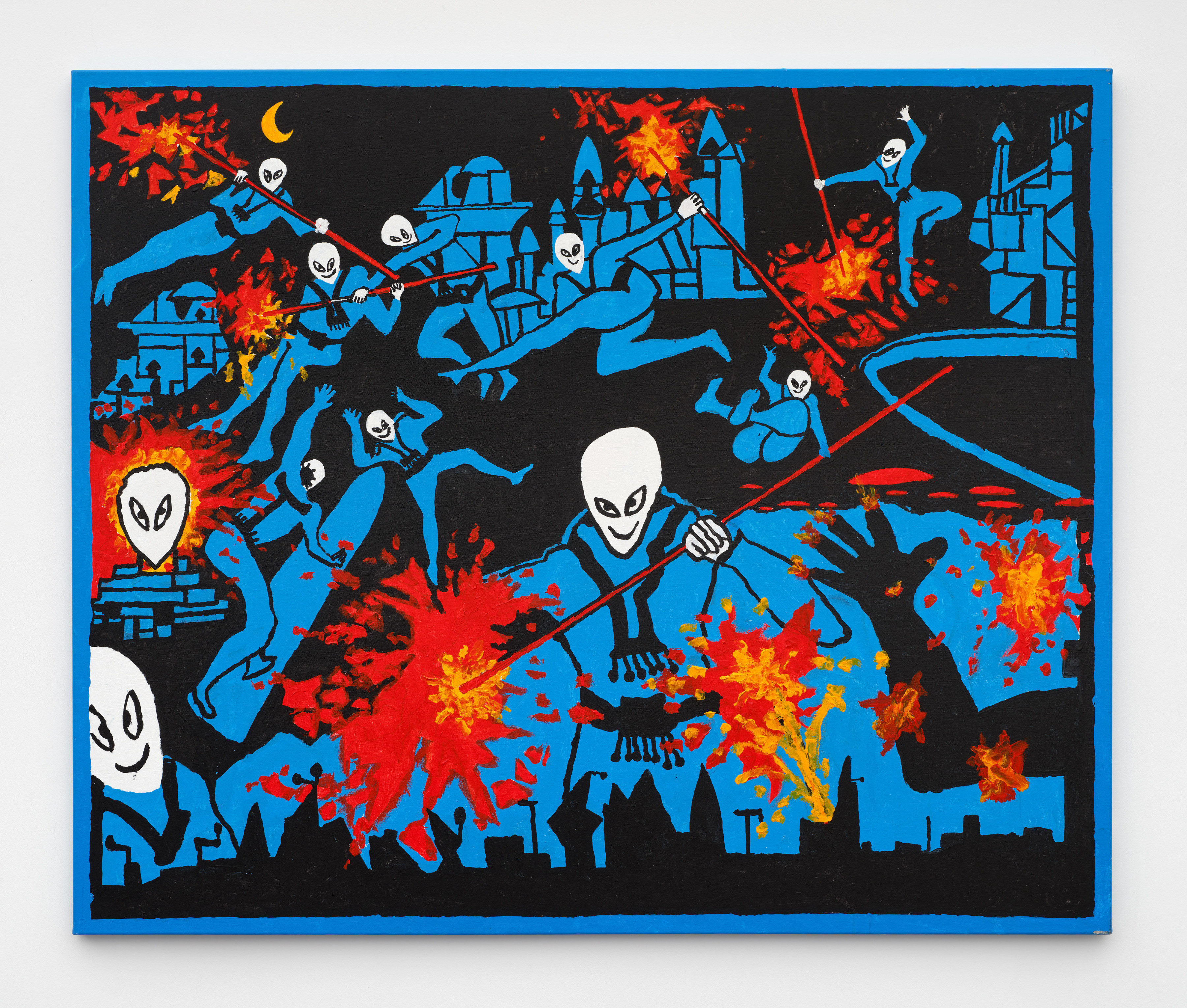
Derek Boshier, Strange Lands: The Blue Planet - Festival of Fire, 2023
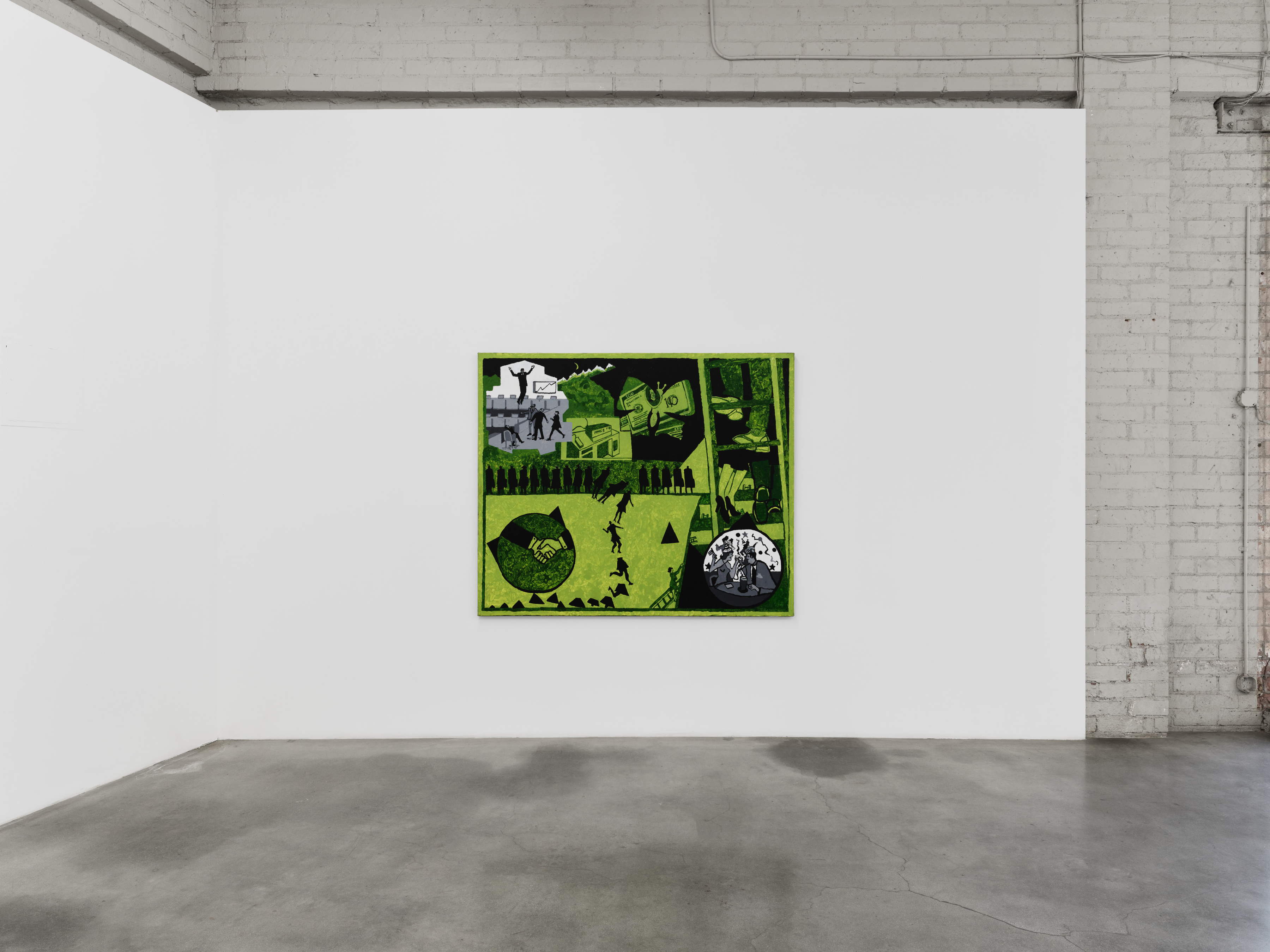
Derek Boshier, Strange Lands, installation view, 2024
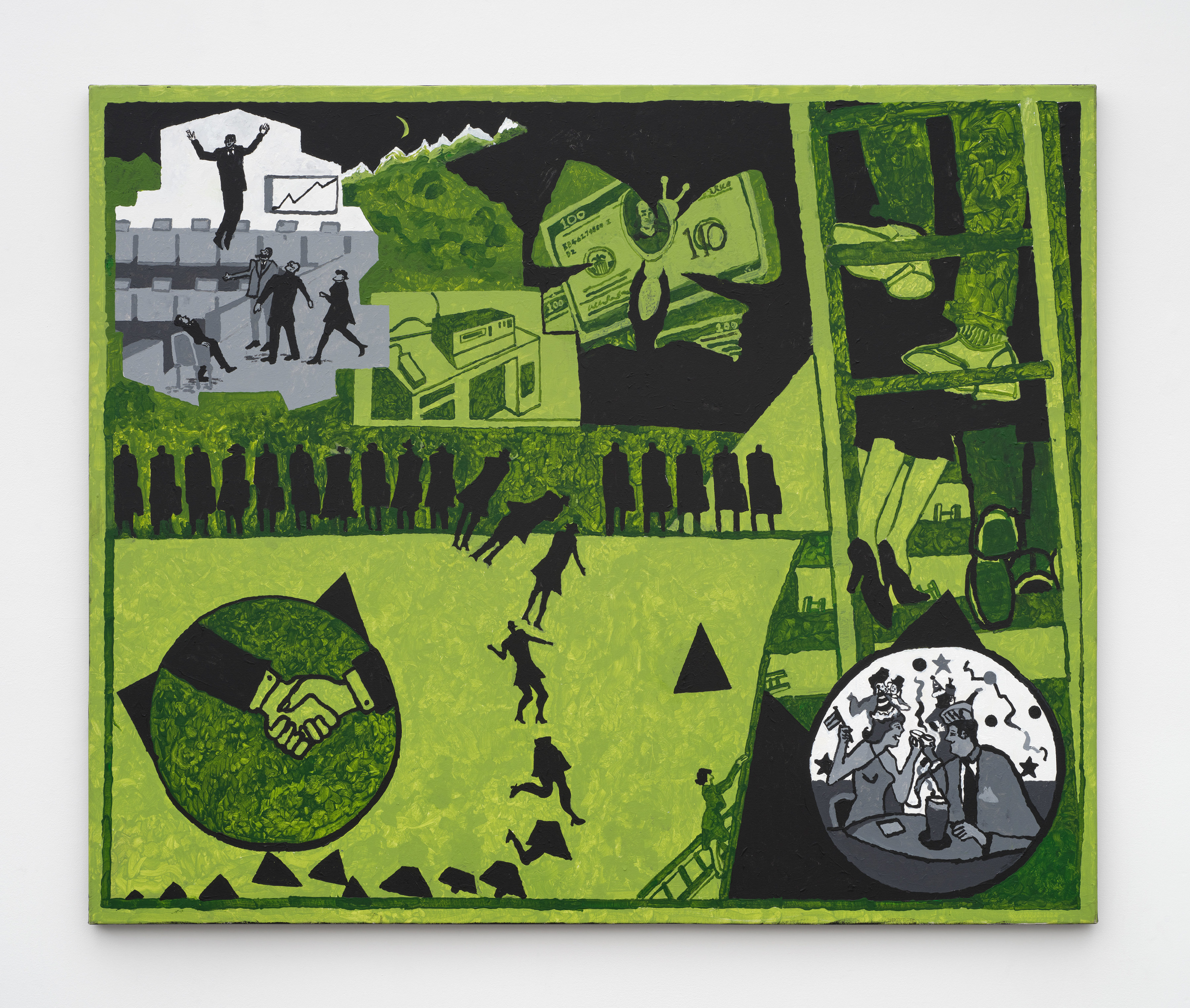
Derek Boshier, Strange Lands: Corporate Ladders, 2022

Derek Boshier, Strange Lands: Corporate Ladders, detail, 2022
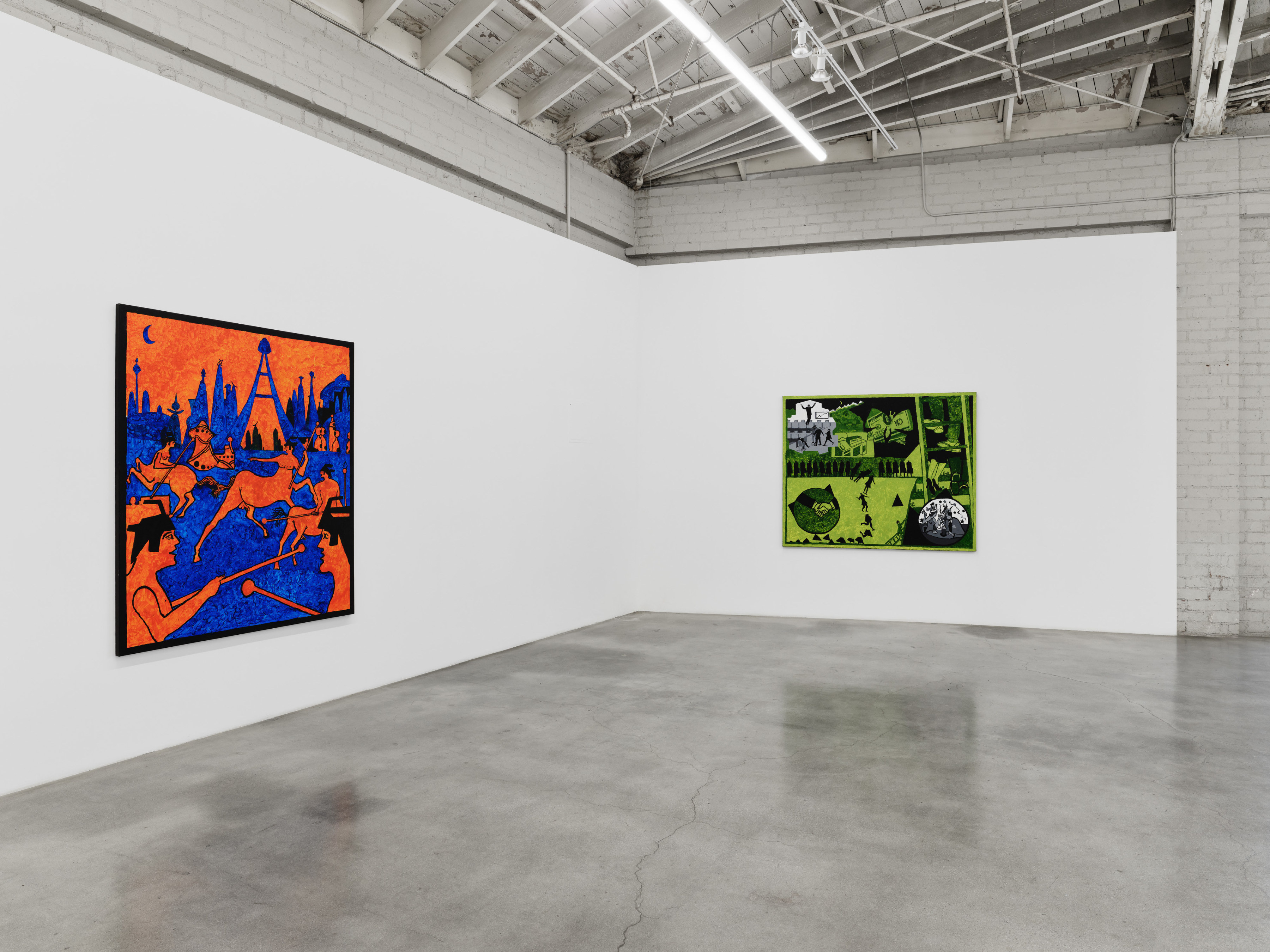
Derek Boshier, Strange Lands, installation view, 2024
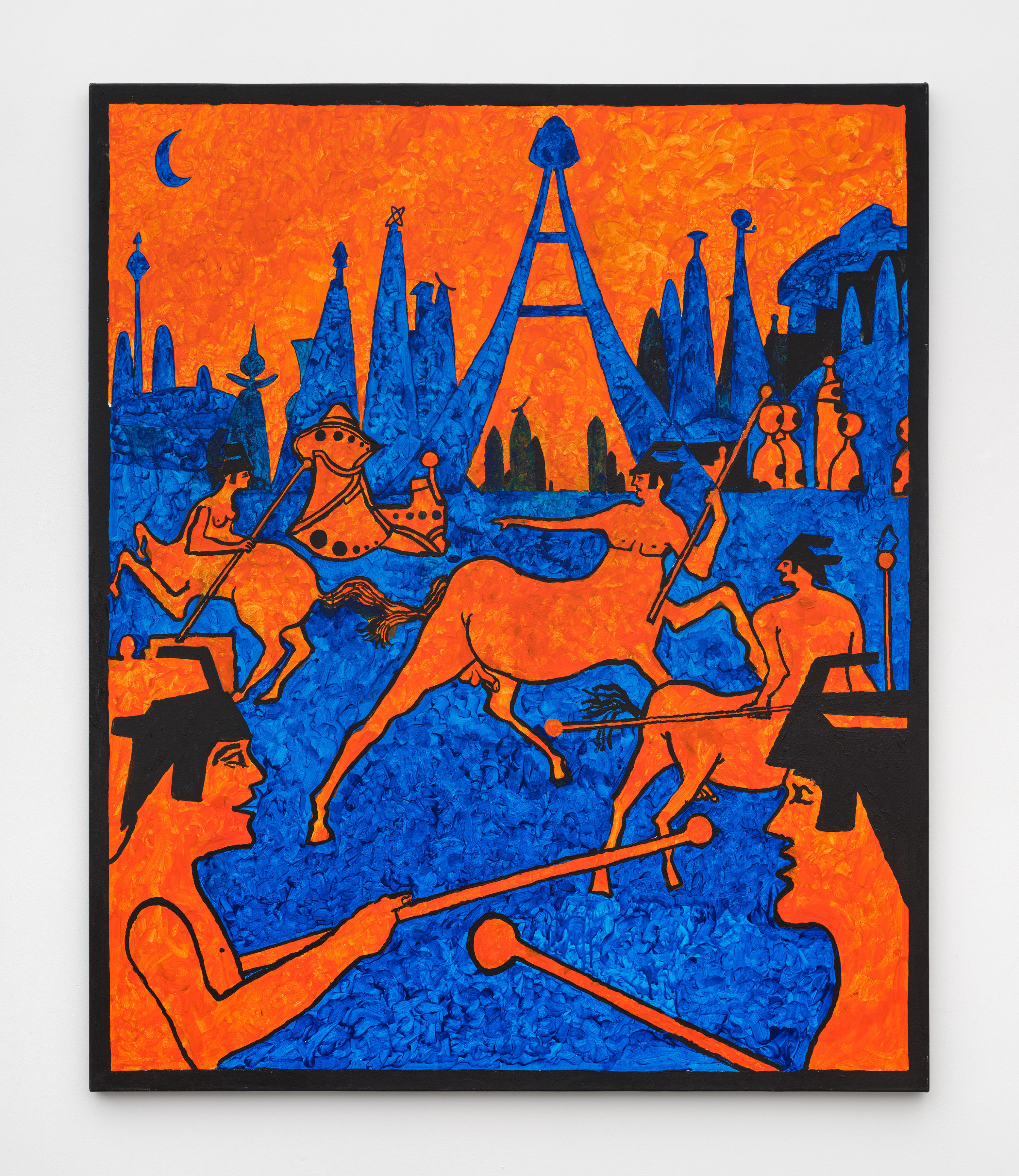
Derek Boshier, Strange Lands: Scepter City Planet 8Z94, 2023
Derek Boshier’s latest series of paintings, Strange Lands, beckons viewers into carnivalesque realms that defy the constraints of time and space. Bizarre characters appear both in earthly and extra-planetary scenes where ancient, medieval, modern, and future eras collide: Alien acrobats twirl fire batons; a demon brandishes a tomahawk while leaping off a flying, severed arm that holds a tiny mosque; centaurs joust with scepters on a blue and orange planet; and the clown-headed “Former Guy” grasps a bow and arrow as he leads a procession of zombies under a sky blackened by bombers and helicopters.
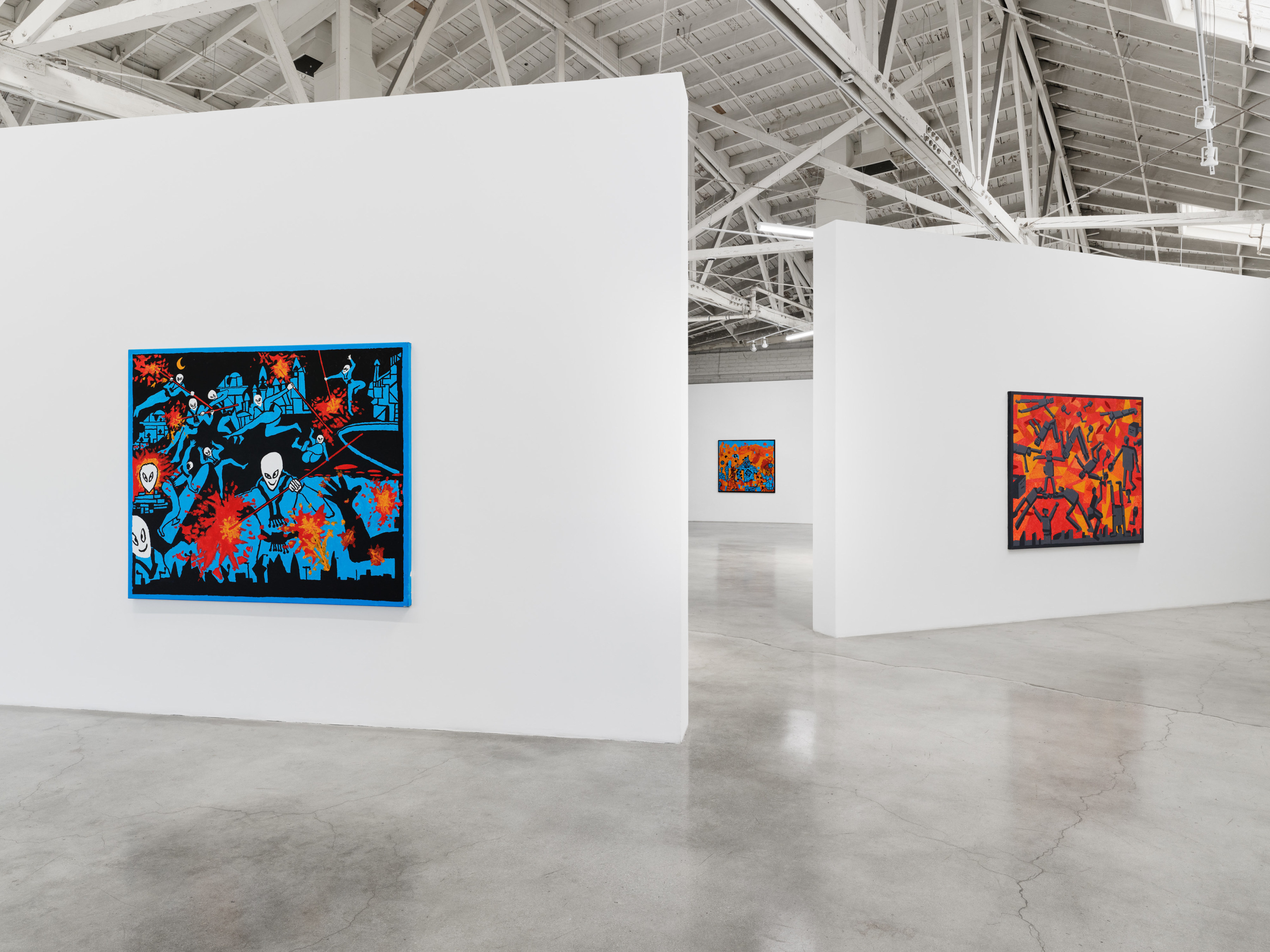
Derek Boshier, Strange Lands, installation view, 2024
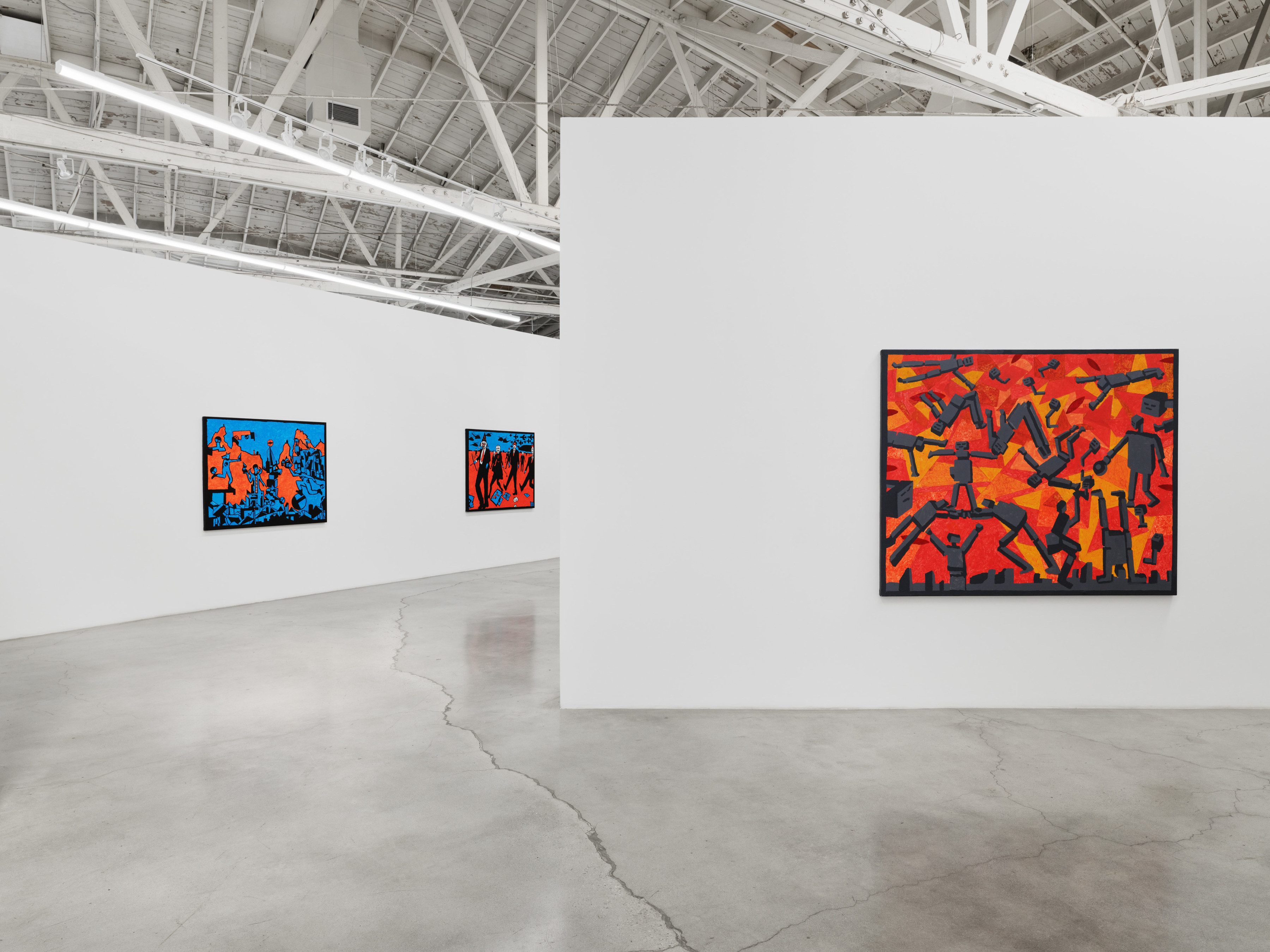
Derek Boshier, Strange Lands, installation view, 2024
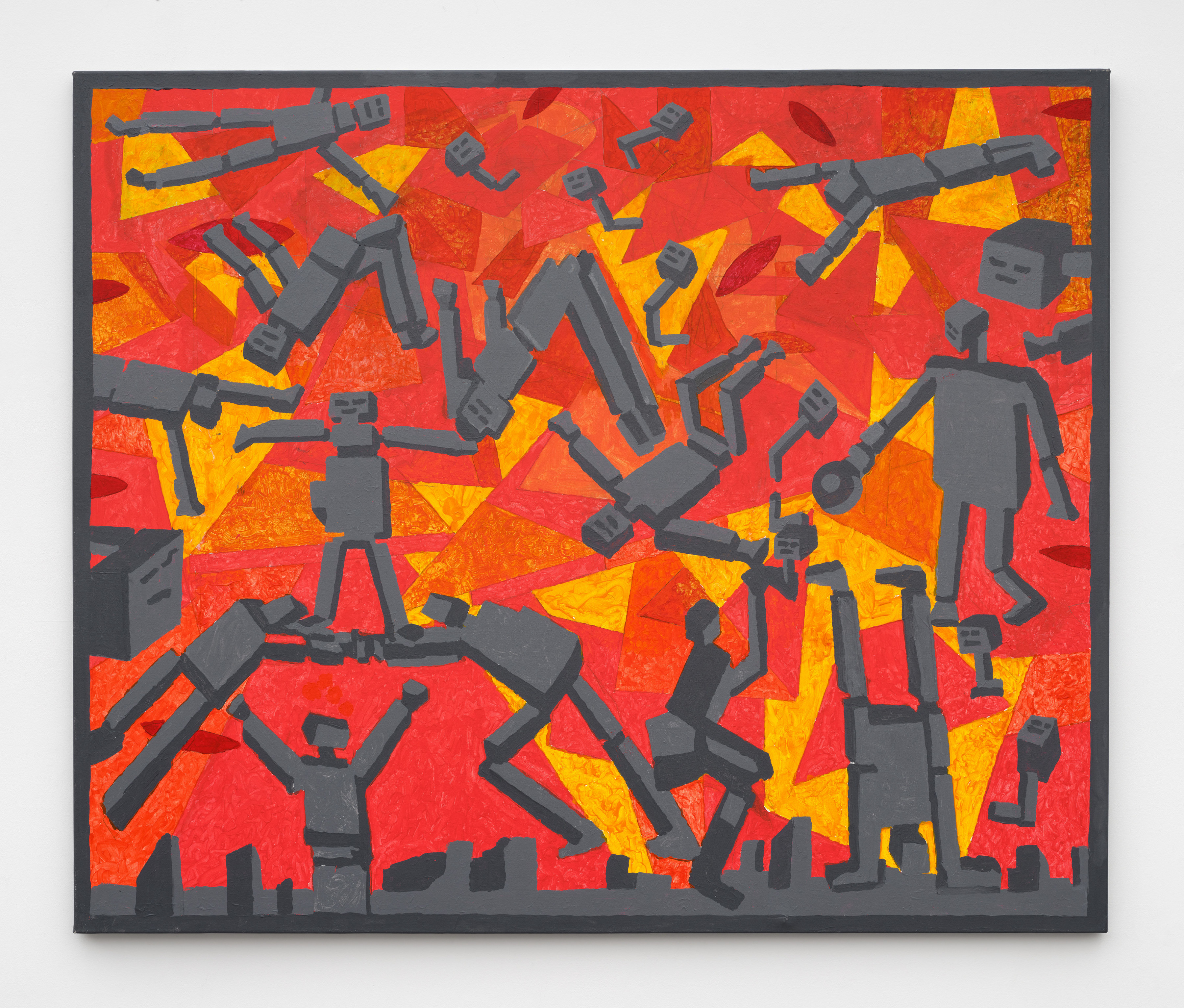
Derek Boshier, Strange Lands: Combined Bot Cities Festival and Games, 2023
Since 1962, when he emerged as a significant figure in British Pop Art alongside Royal College of Art peers including David Hockney, Pauline Boty, and Peter Blake, Boshier has critiqued the media’s mechanisms of influence. His art has considered how the Cold War nuclear arms race encroached on our domestic spaces via TV and cereal boxes, and how we’re now affected by the 3.2 billion images shared daily on the internet. In the Strange Lands series, he takes satirical swipes at organized religion, MAGA-era politics, corporate malfeasance, and the audacious fantasy of colonizing other planets while heedlessly exhausting our own. Like Samuel Beckett, whose plays he has admired since his youth, Boshier focuses his incisive wit on the vagaries and absurdities of the human condition.
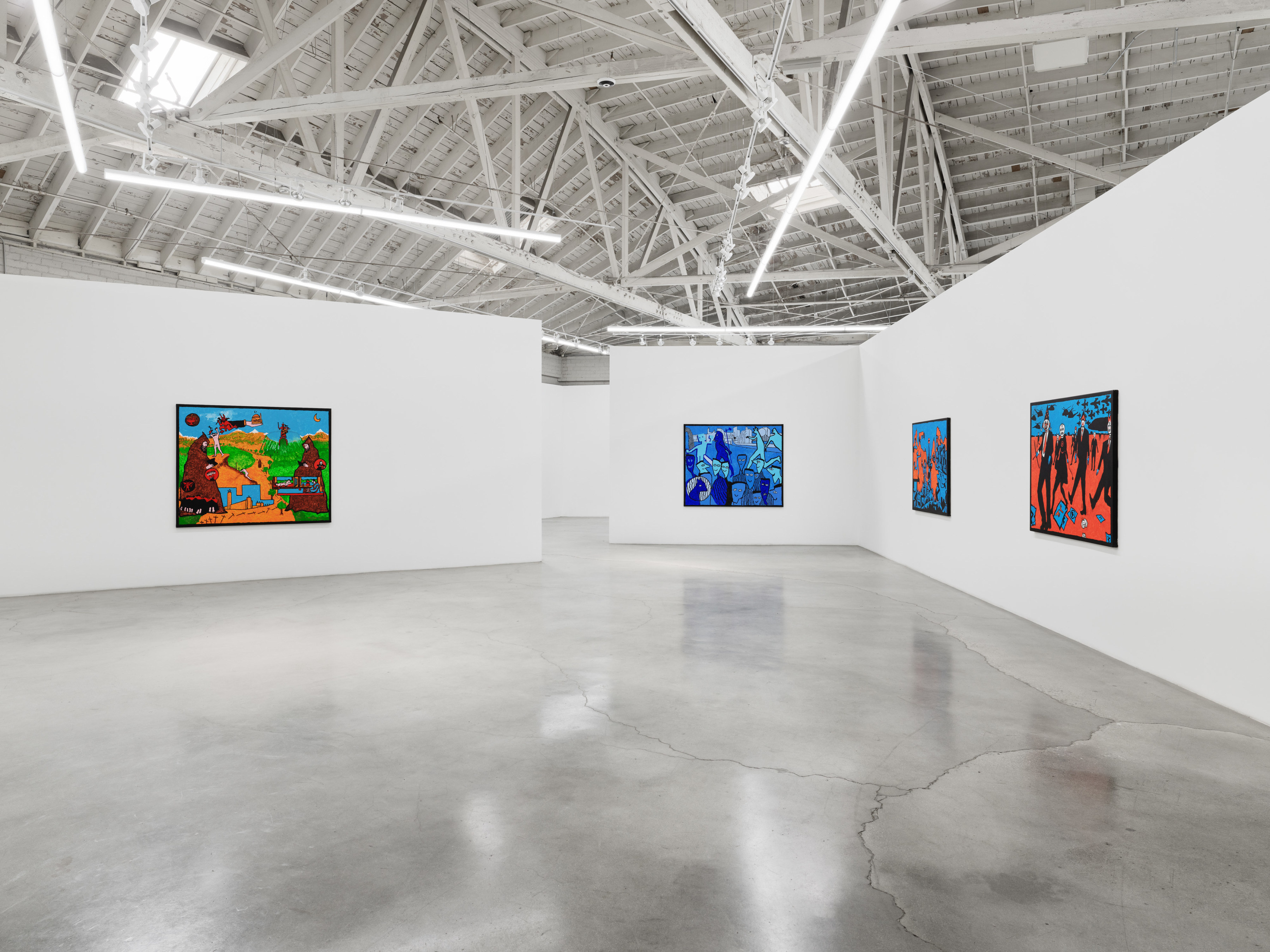
Derek Boshier, Strange Lands, installation view, 2024
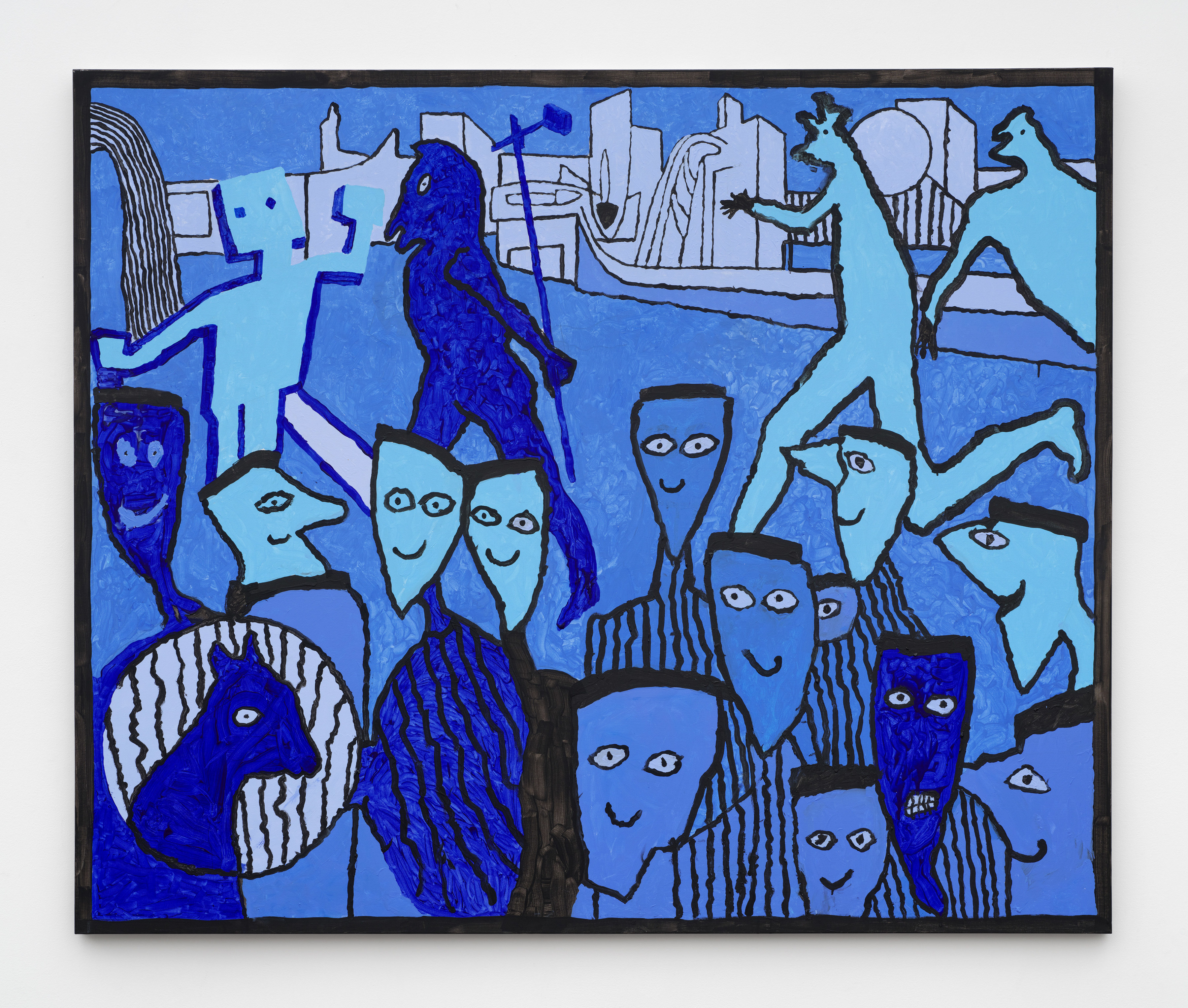
Derek Boshier, Strange Lands: Planet Kyano, 2023
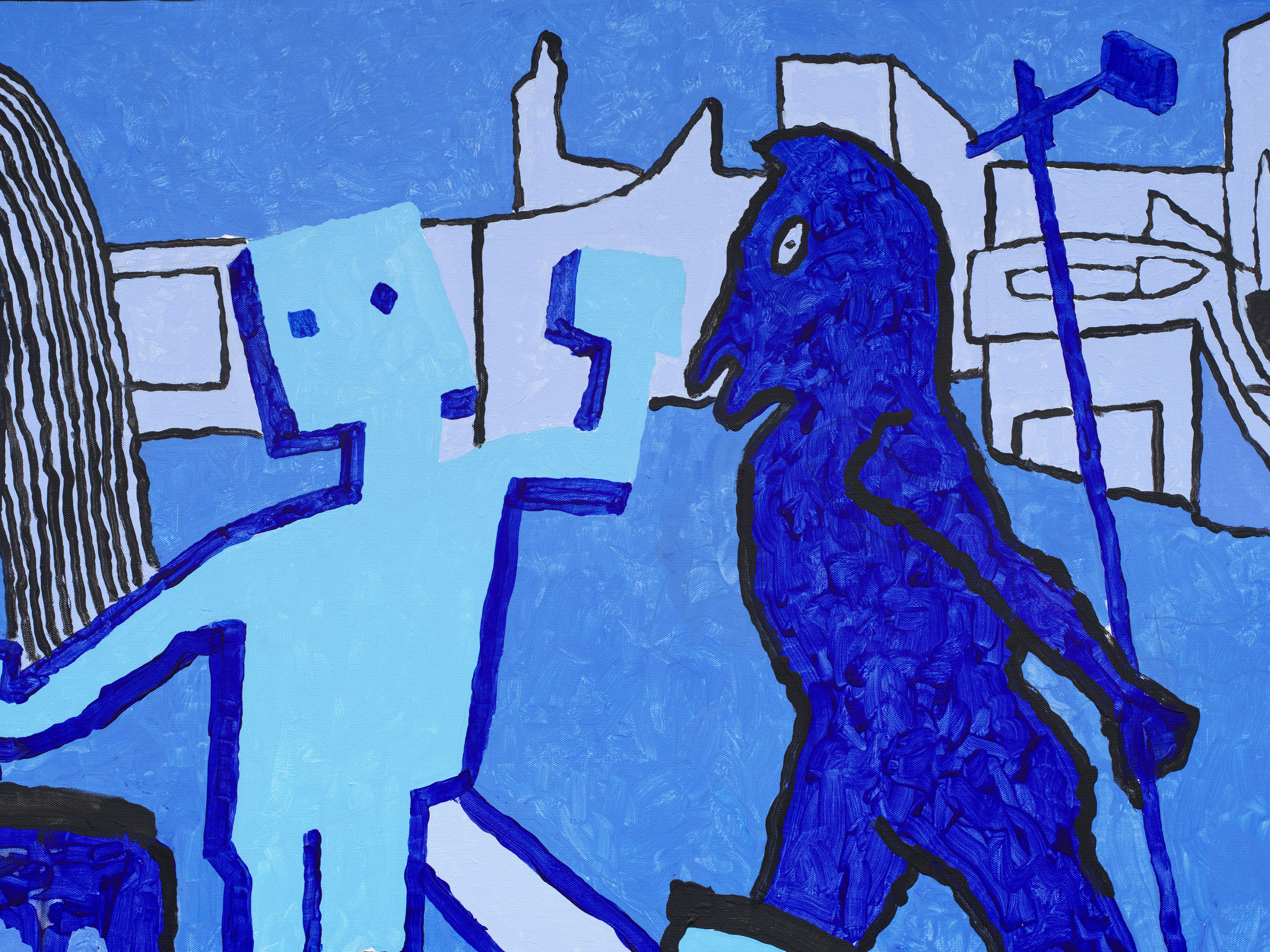
Derek Boshier, Strange Lands: Planet Kyano, detail, 2023
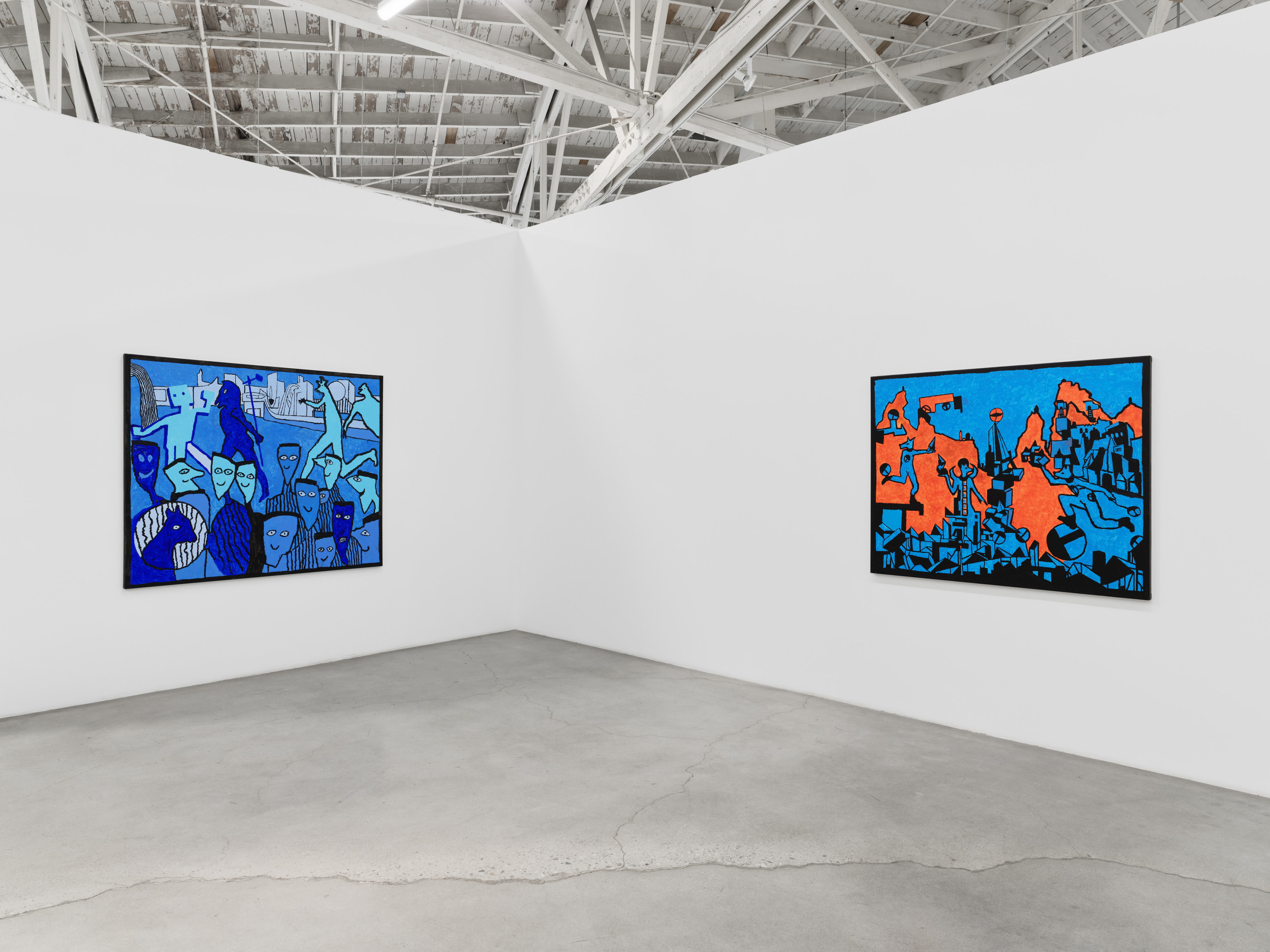
Derek Boshier, Strange Lands, installation view, 2024
A bracing interpenetration of figurative elements and sheer geometric form has been critical to Boshier’s conceptual strategy. This approach is at play in his experimental films, his stage set maquettes for David Bowie, and his drawings, collages, and paintings. In Strange Lands, bold, reductive colors; thick, jittery outlines; and vibrant spatial ambiguities activate the network of images that Boshier has culled from art history, science fiction, mythology, and the media. Squares, triangles, circles, pyramids, and cuboids hover on many of the new paintings’ surfaces. These primary shapes appear to magnetically align and attach to others. In Strange Lands: Planet Orange, this creates multifaceted architectural structures. In Strange Lands: Corporate Ladders, silhouetted triangles morph in stages into stemmed trapezoids, a skirt with legs, and, finally, full figures that veer off into a queue of spectators.
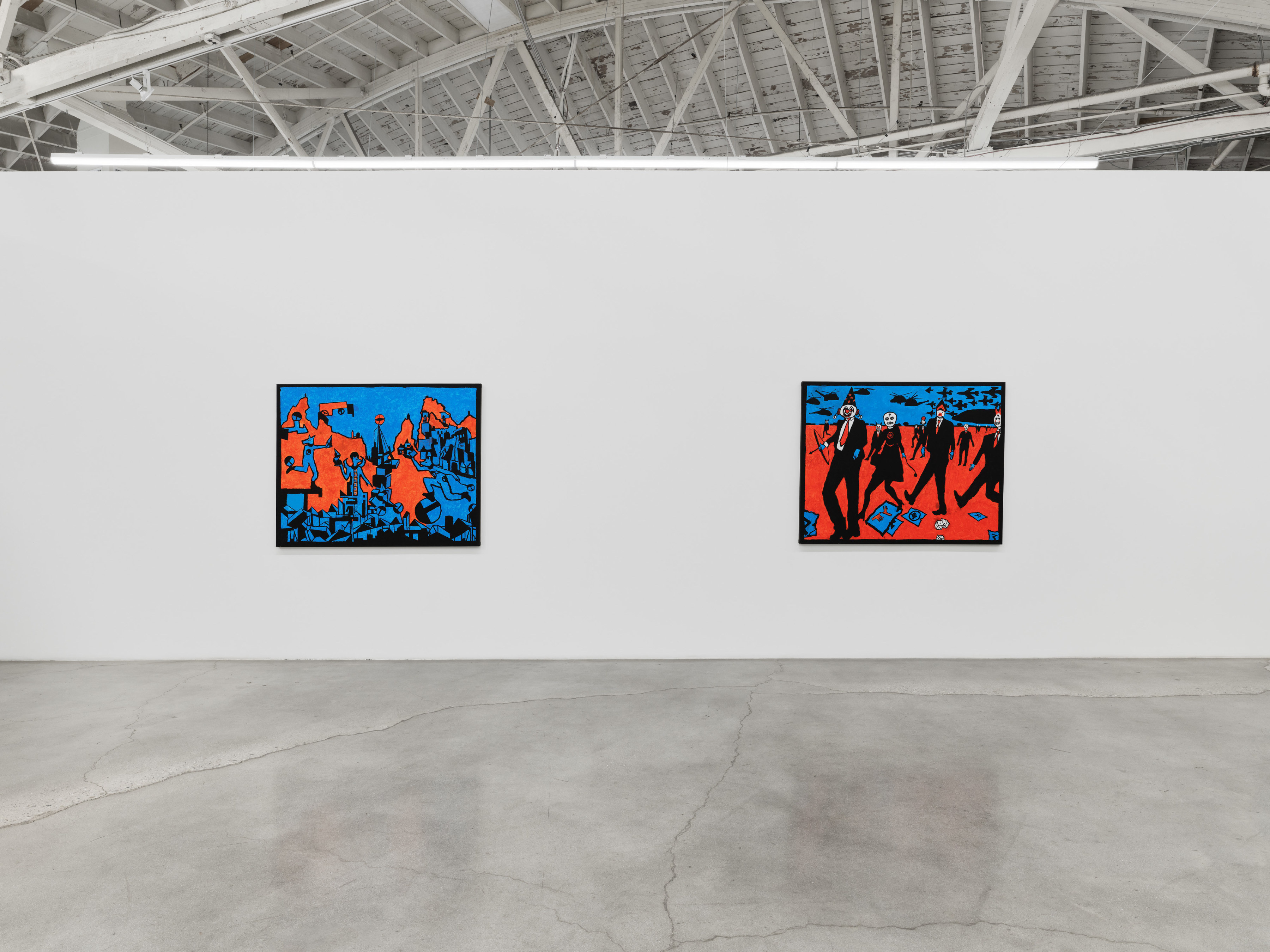
Derek Boshier, Strange Lands, installation view, 2024
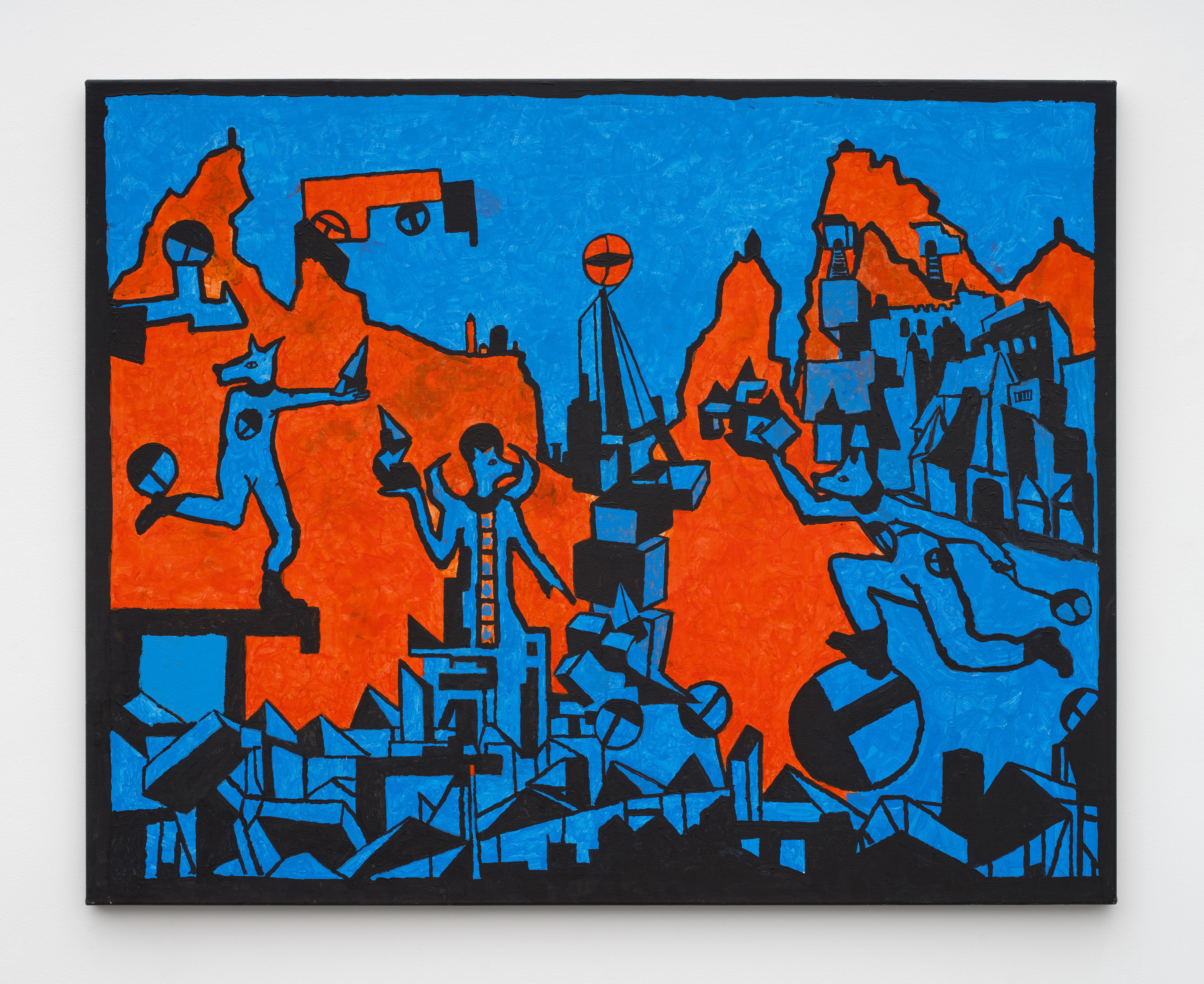
Derek Boshier, Strange Lands: Planet Orange, 2023
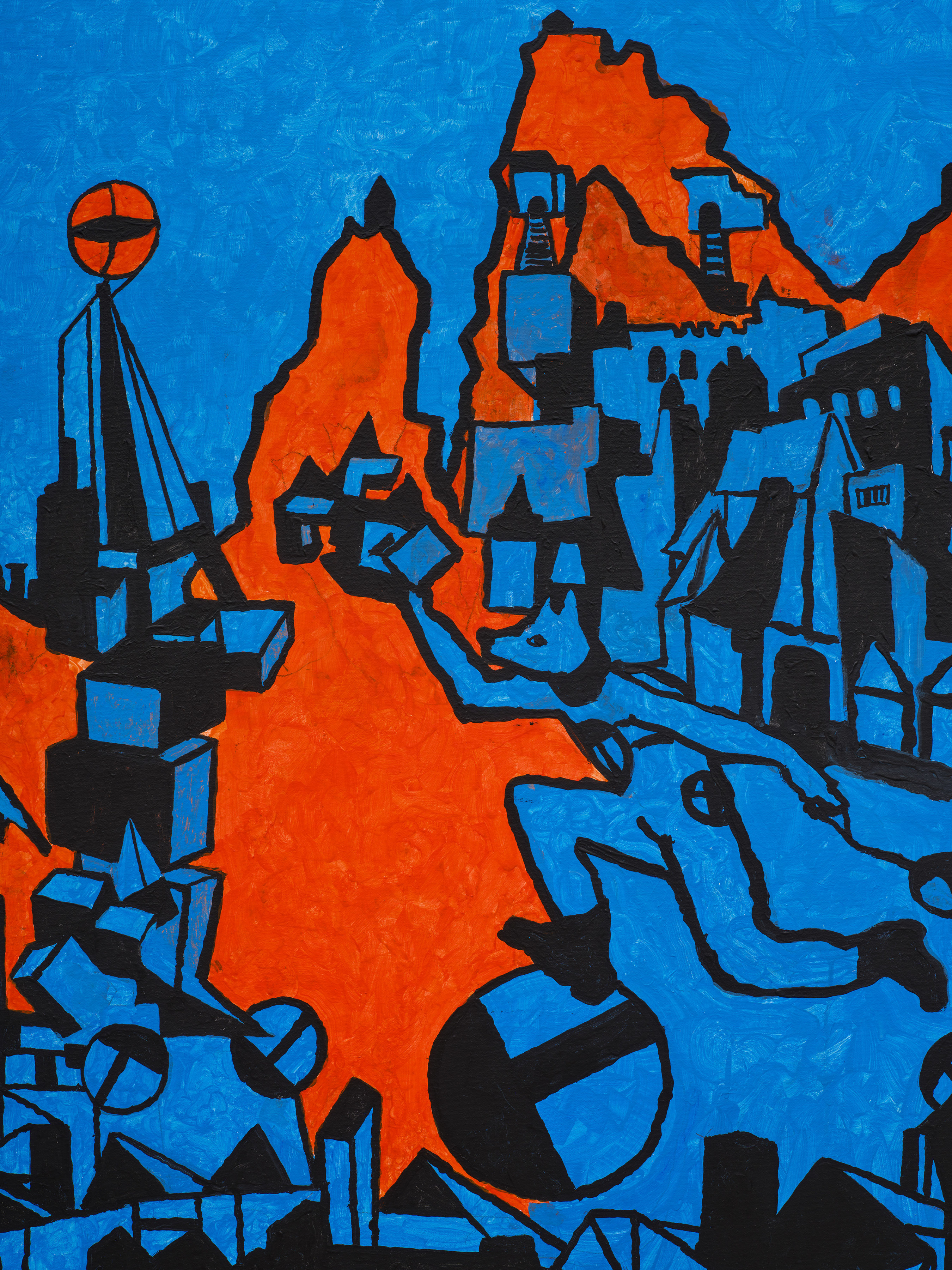
Derek Boshier, Strange Lands: Planet Orange, detail, 2023
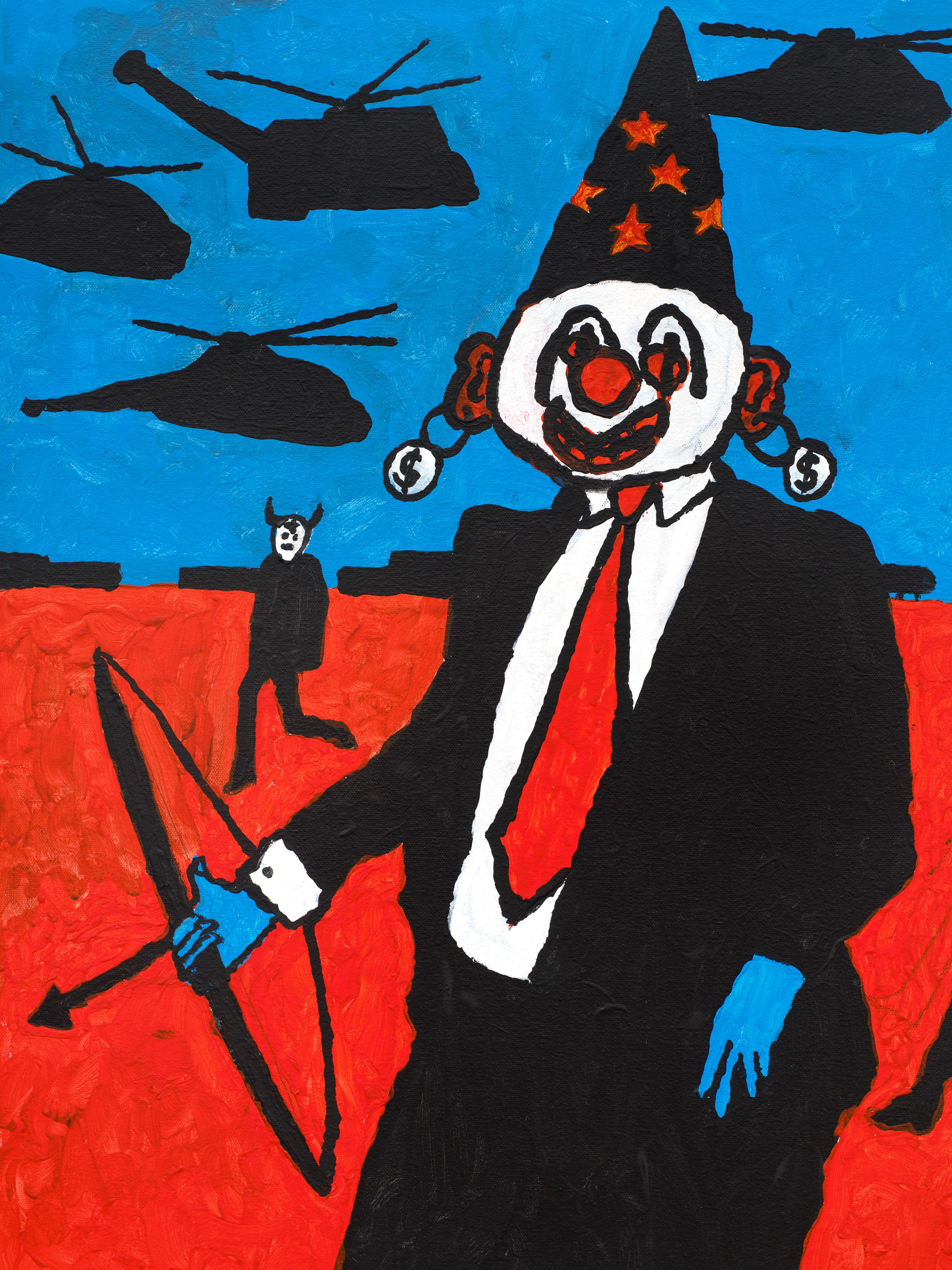
Derek Boshier, Strange Lands: Donald Trump and Friends on Their Way to a National Security Meeting, detail, 2023
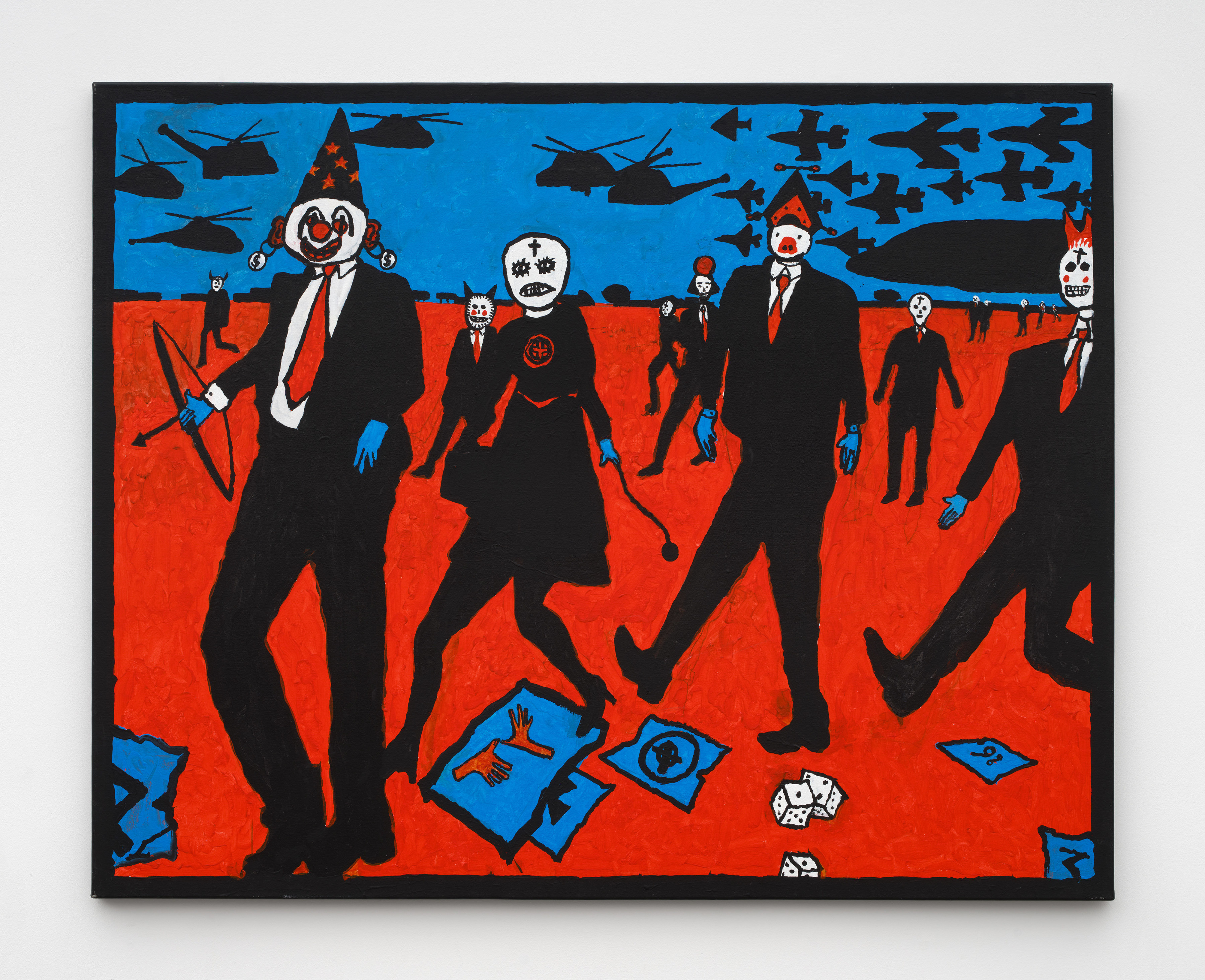
Derek Boshier, Strange Lands: Donald Trump and Friends on Their Way to a National Security Meeting, 2023
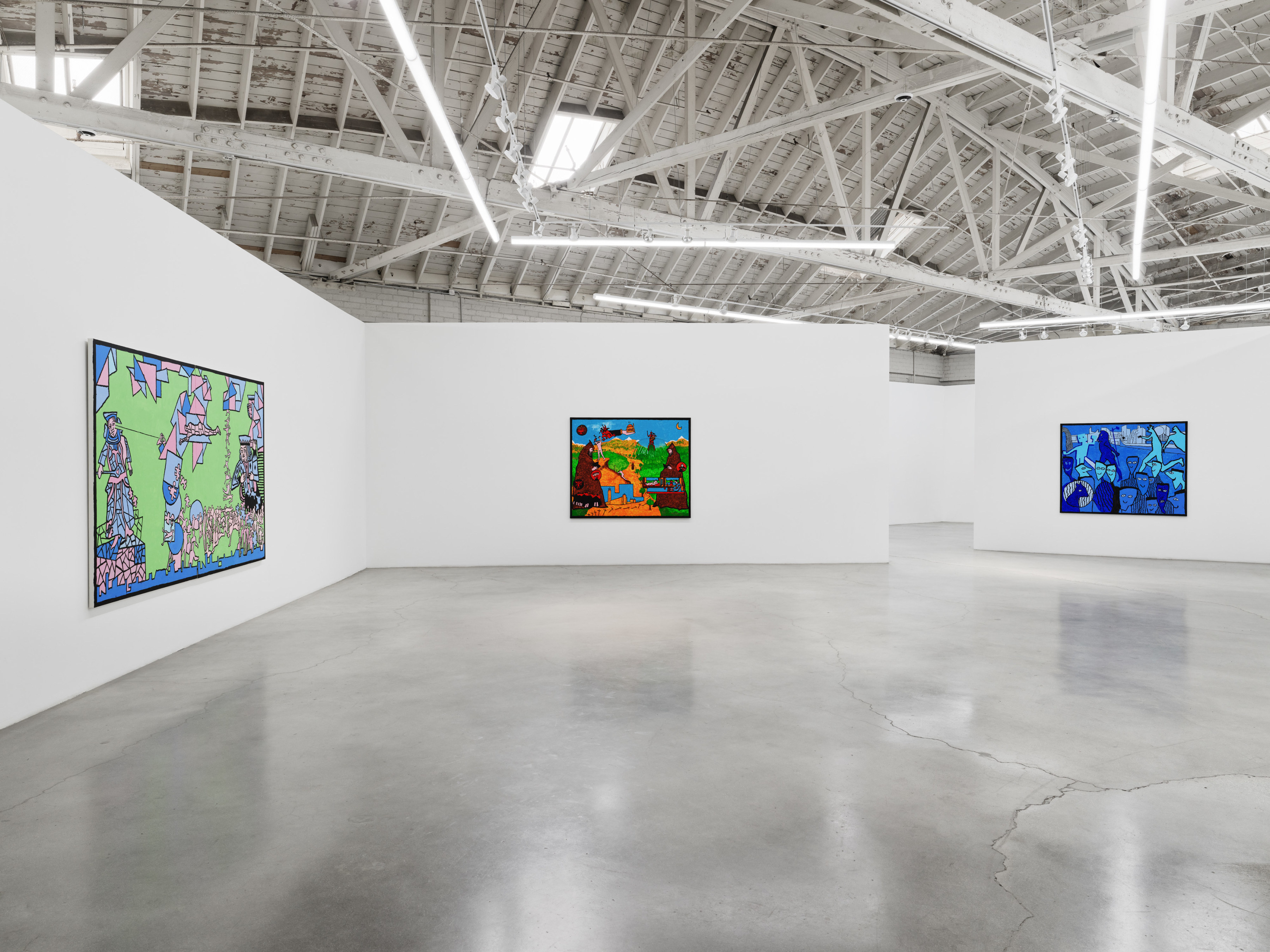
Derek Boshier, Strange Lands, installation view, 2024
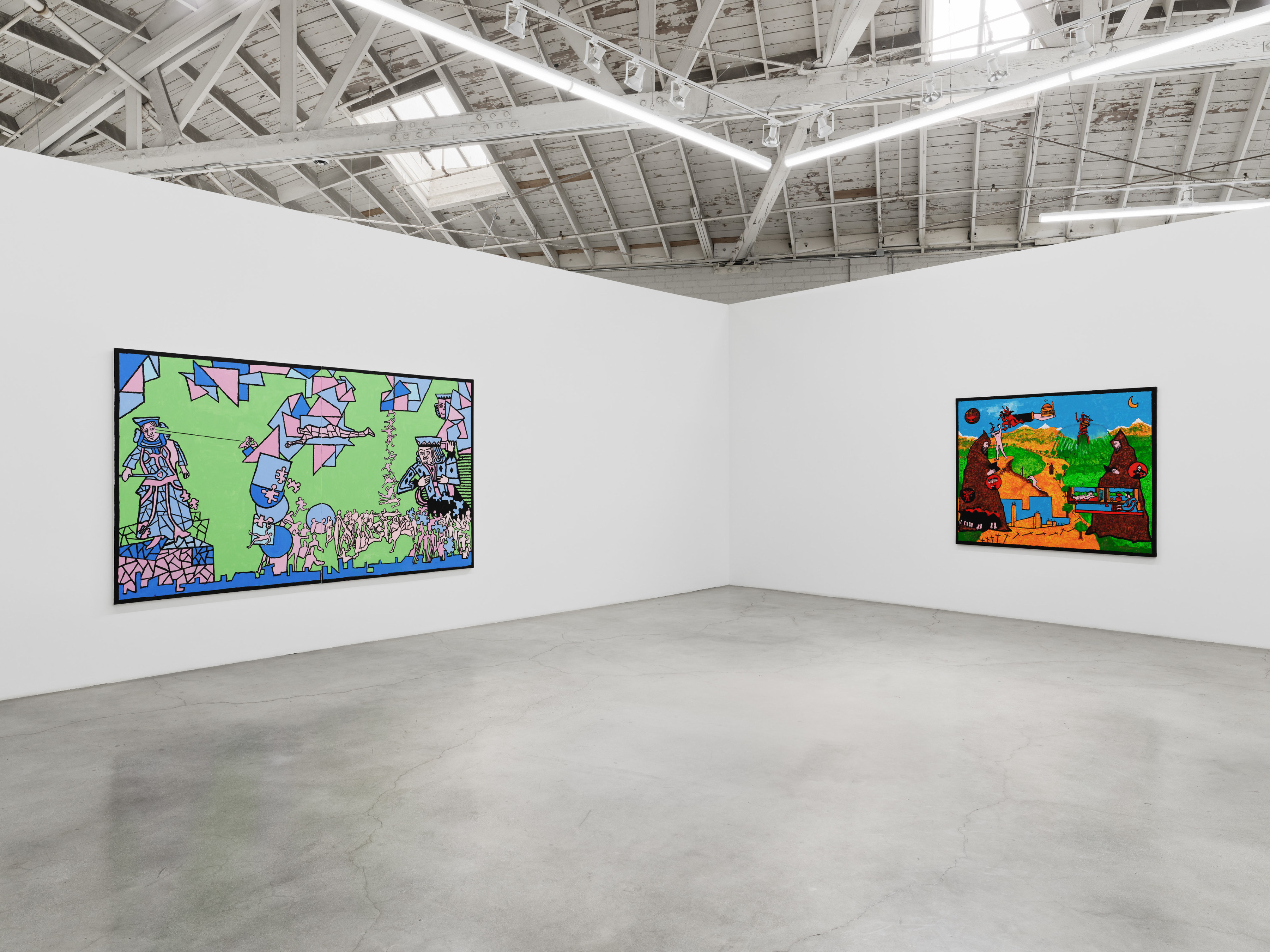
Derek Boshier, Strange Lands, installation view, 2024
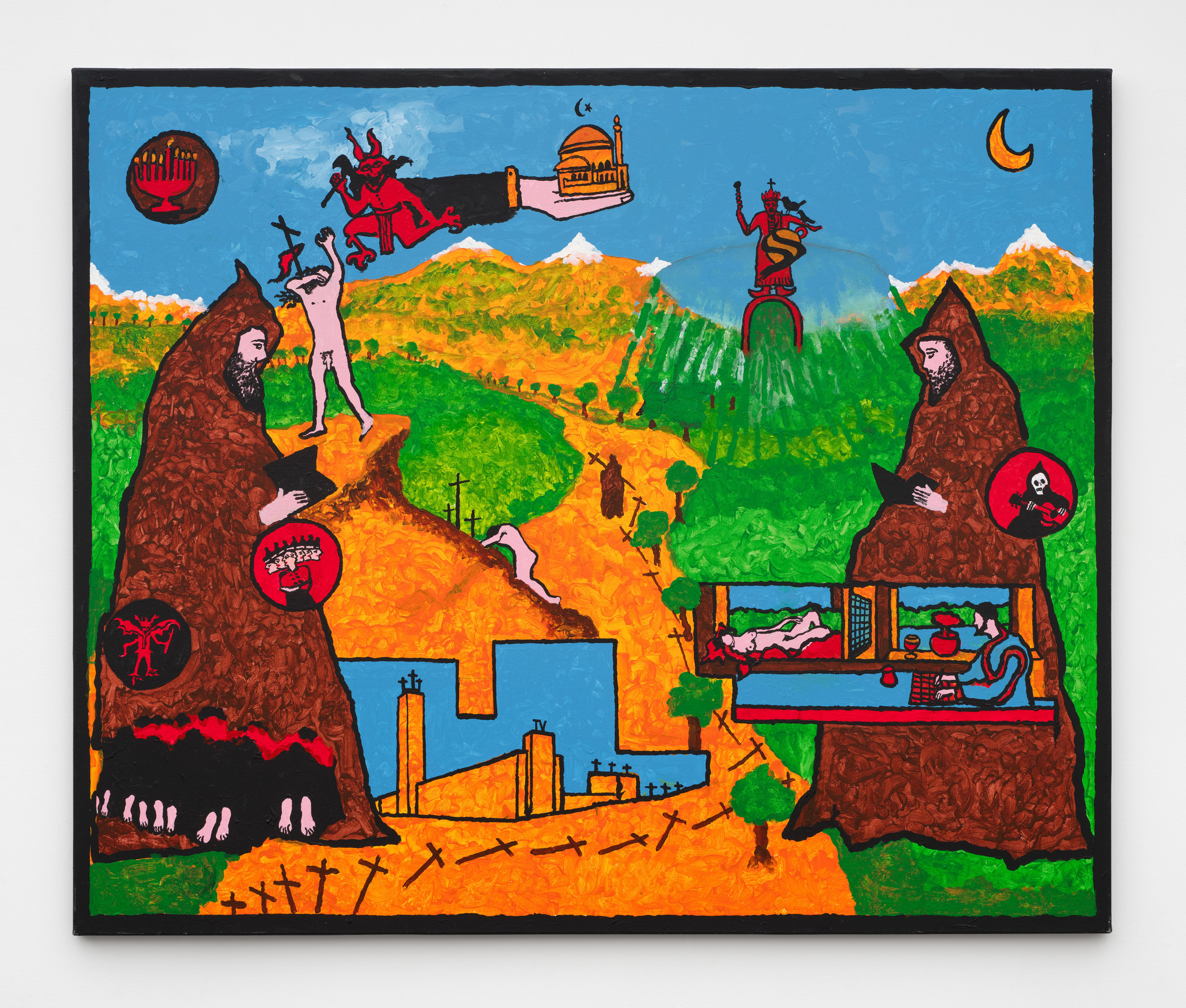
Derek Boshier, Strange Lands: Spiritulamus, 2023
Boshier’s masterful blending of representational and complex abstract systems is also evident in Strange Lands: Landscape #1, a medieval village scene with a background detail from Pieter Brueghel’s The Triumph of Death. At the center of the composition, a saint clutches an elongated cross that leans towards—and nearly merges with—a floating rendition of El Lissitzky’s 1920s lithograph, New Man, which consists of squares, trapezoids, triangles, and crescents. To the left, a courtier descends a pathway of rectangles that appear as if windswept from the Lissitzky. In the saint’s anachronistic revelation, we see in a flash what a brilliant instrument of design the cross was, traversing from pre-Christian times into pure modernist abstraction.
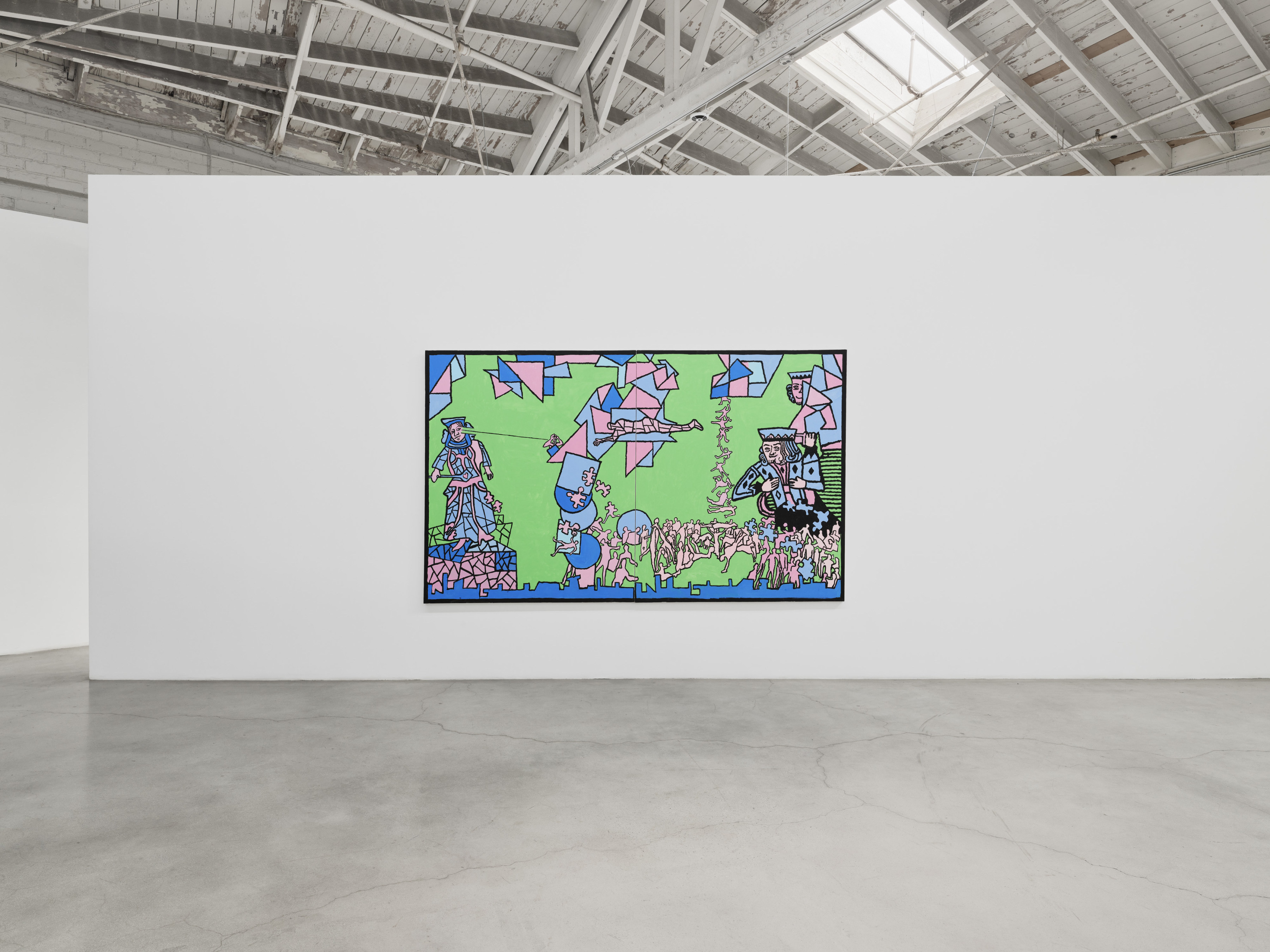
Derek Boshier, Strange Lands, installation view, 2024
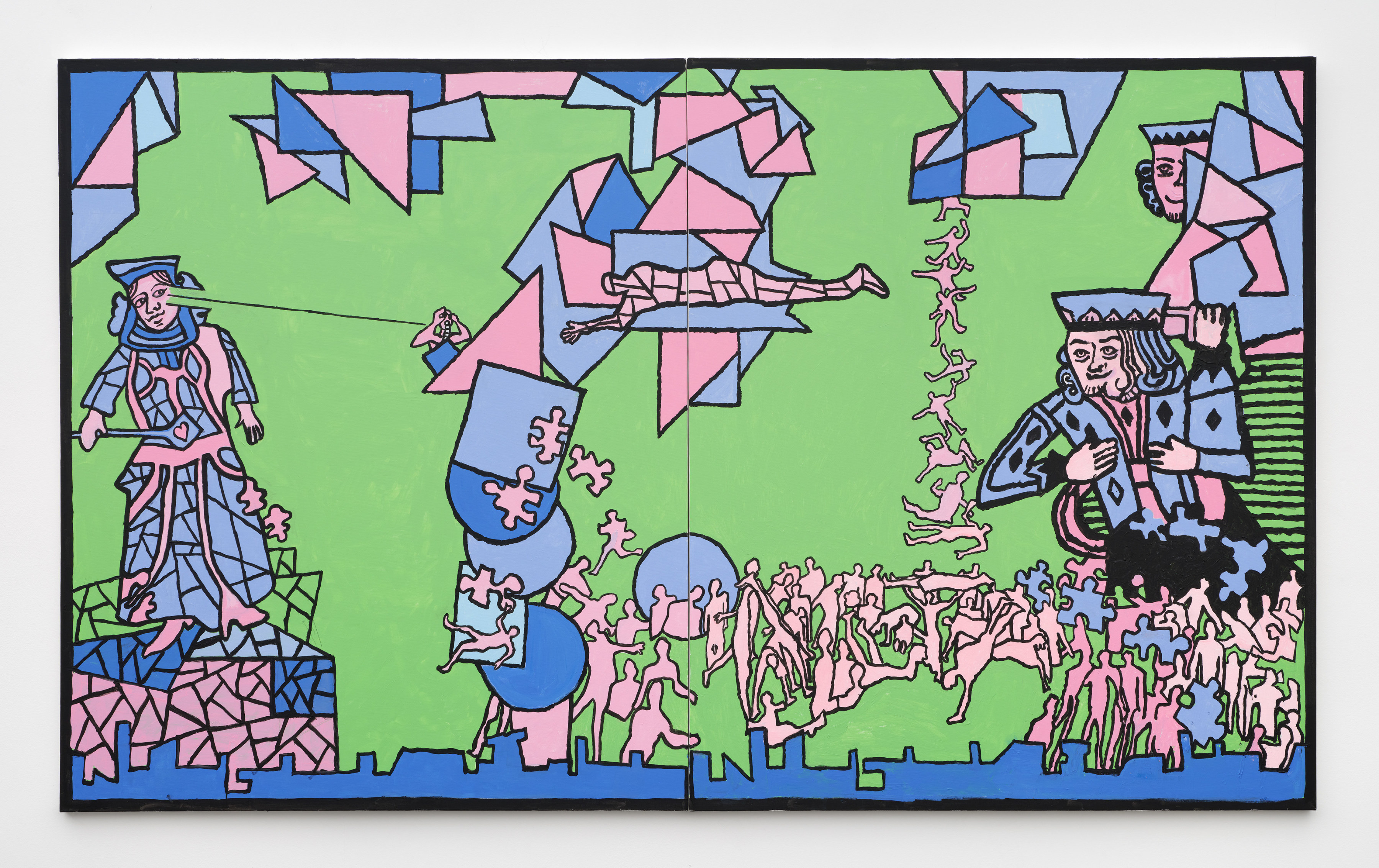
Derek Boshier, Strange Lands: The Game, 2024
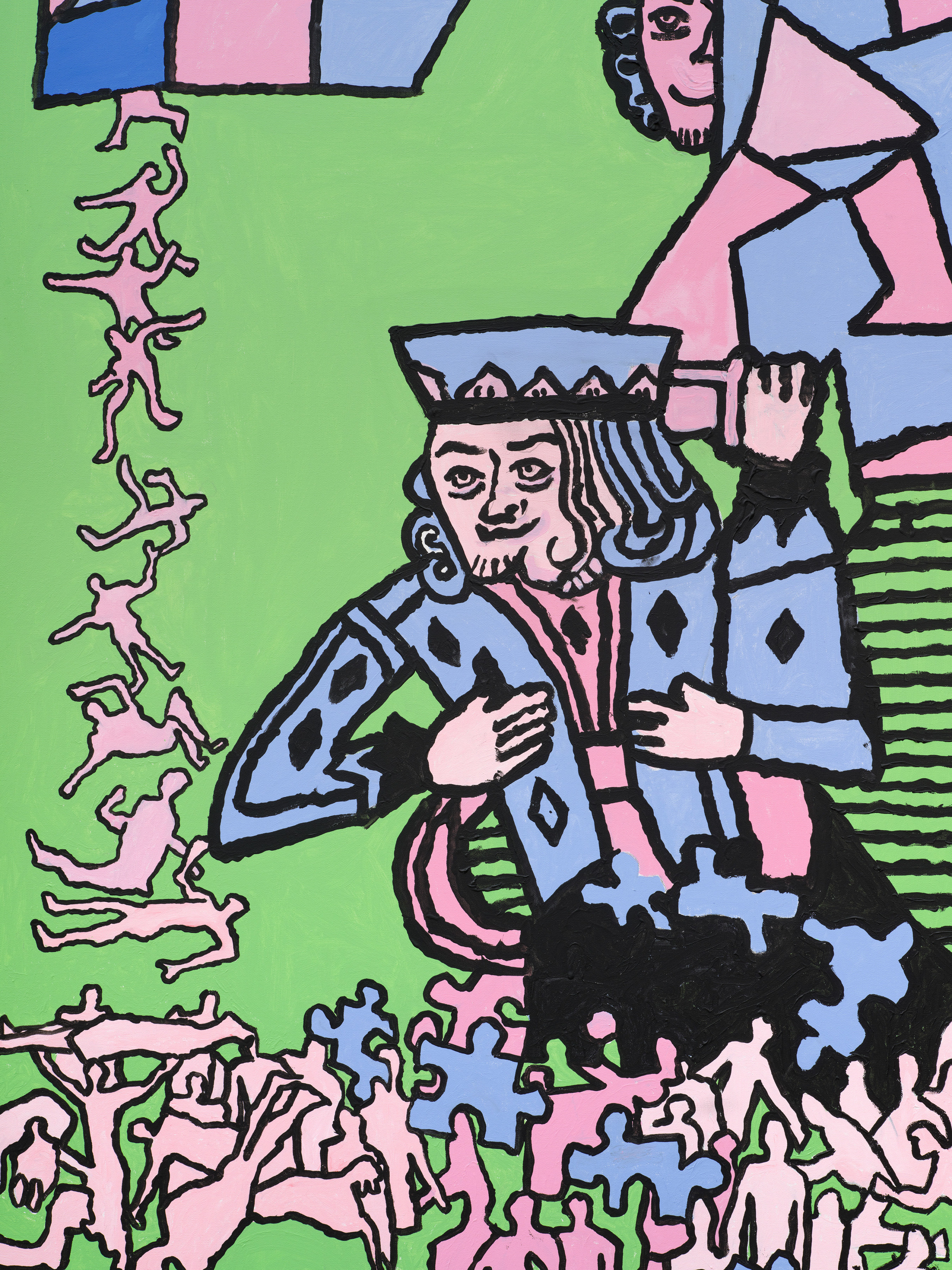
Derek Boshier, Strange Lands: The Game, detail, 2024
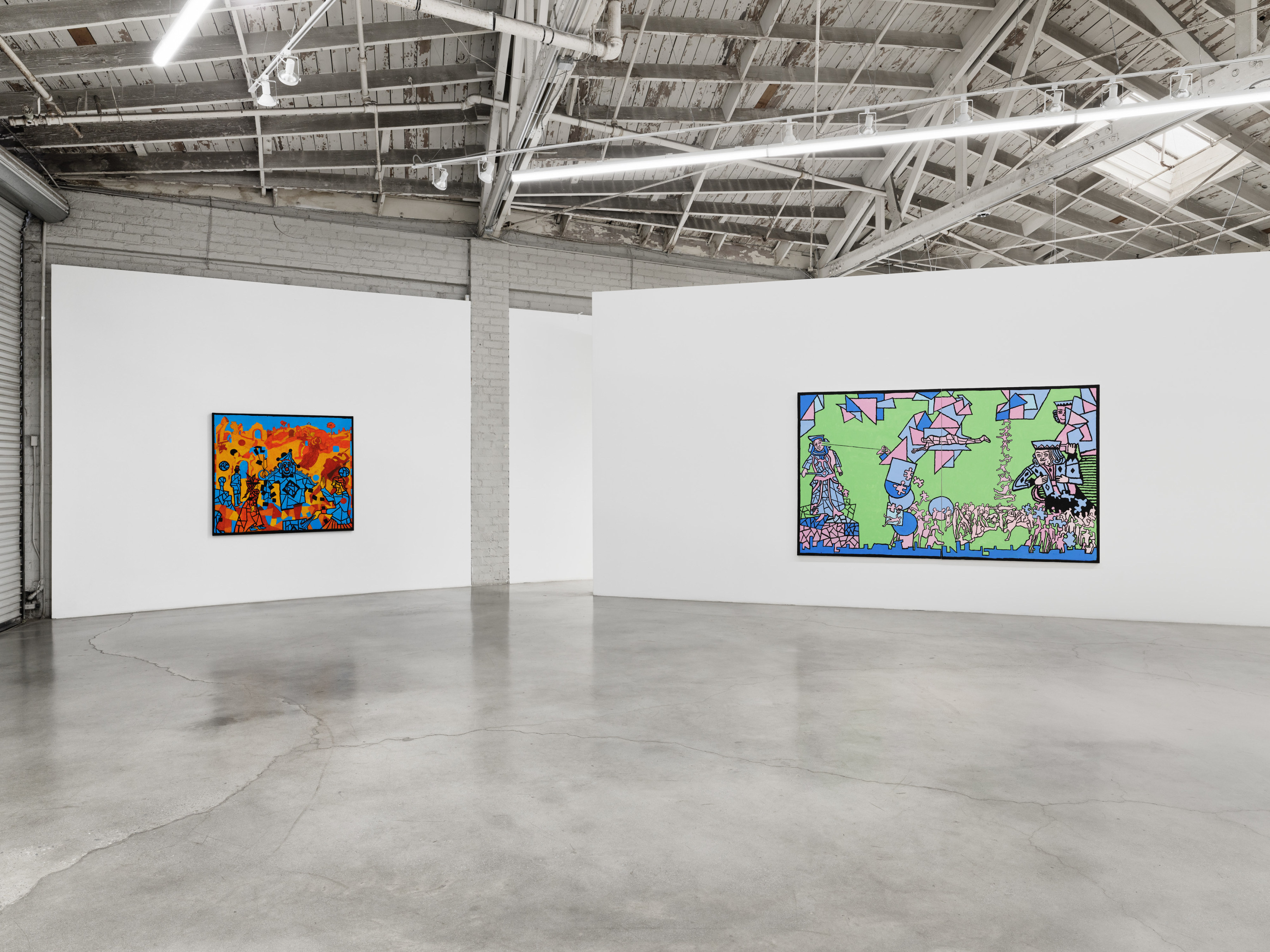
Derek Boshier, Strange Lands, installation view, 2024
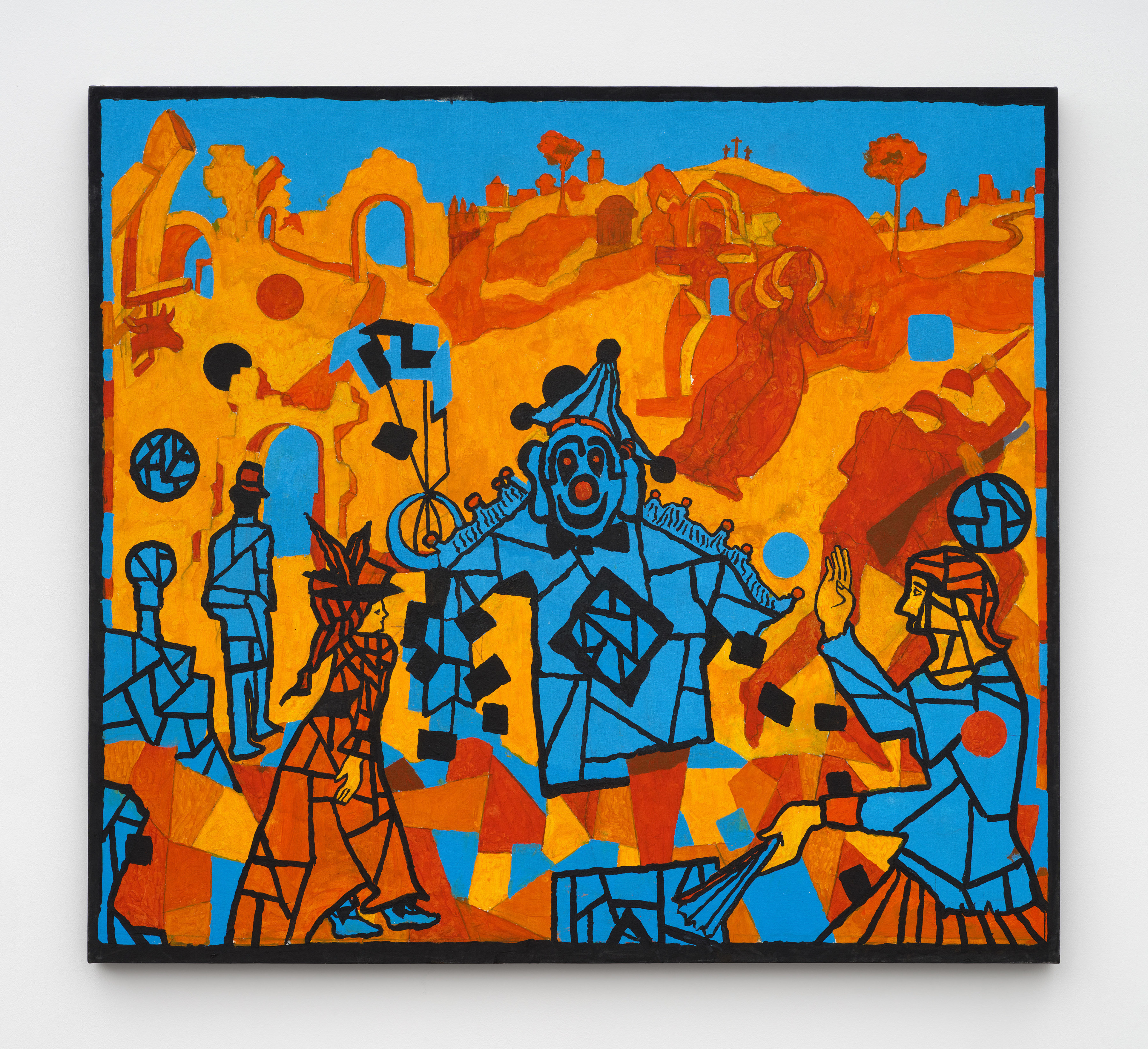
Derek Boshier, Strange Lands: Landscape #2, 2023
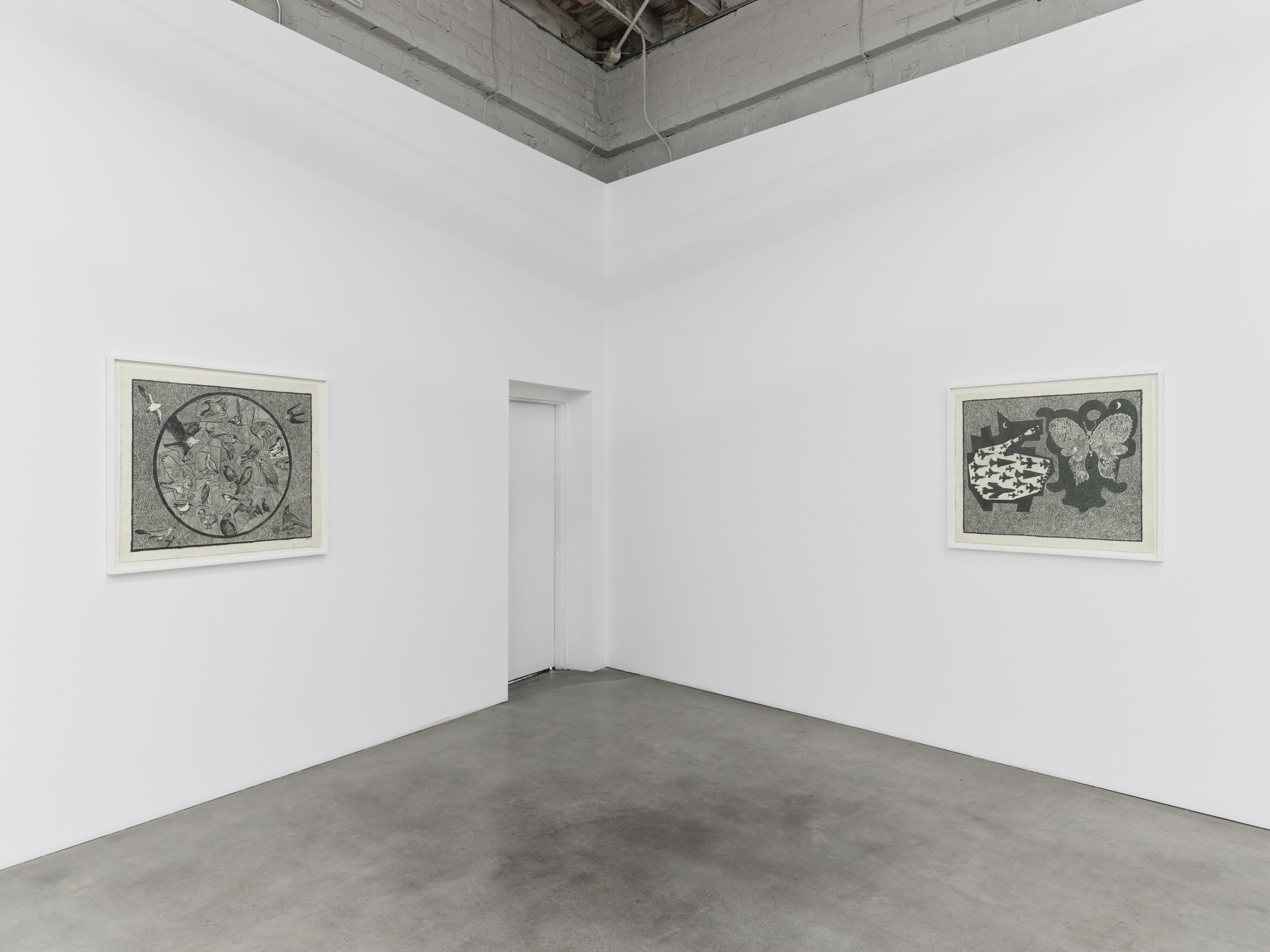
Derek Boshier, Strange Lands, installation view, 2024
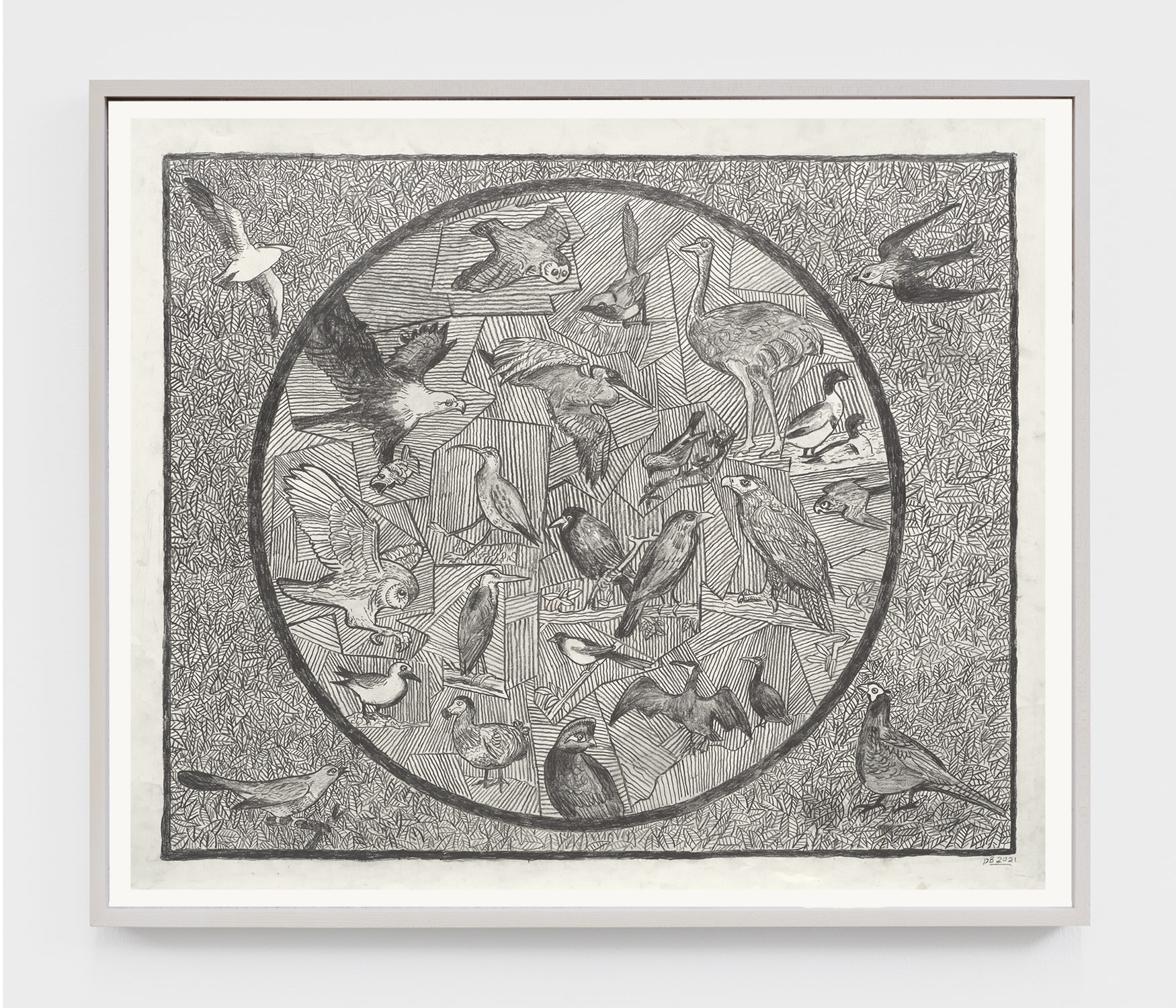
Derek Boshier, Birds, 2021
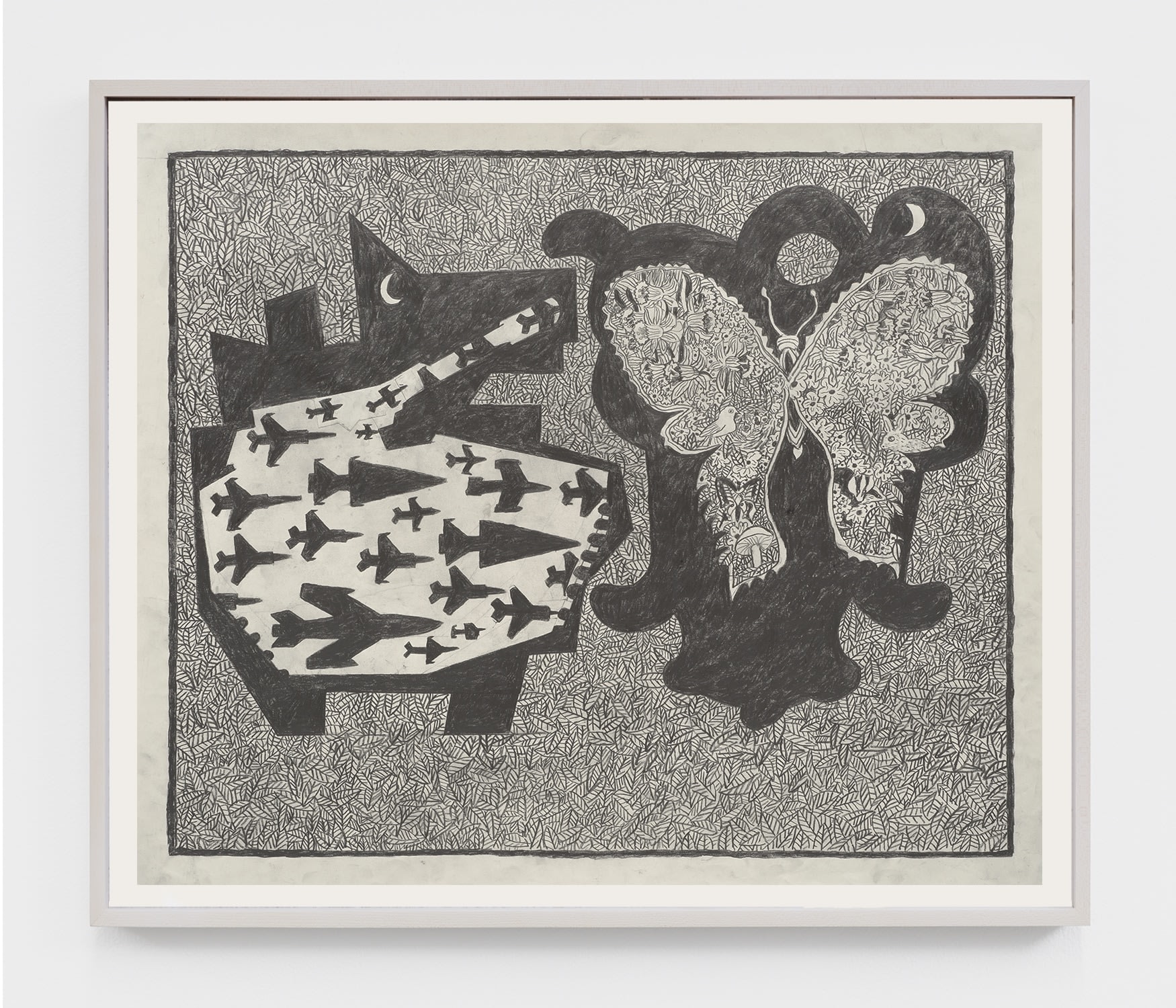
Derek Boshier, Butterflies and Planes, 2021
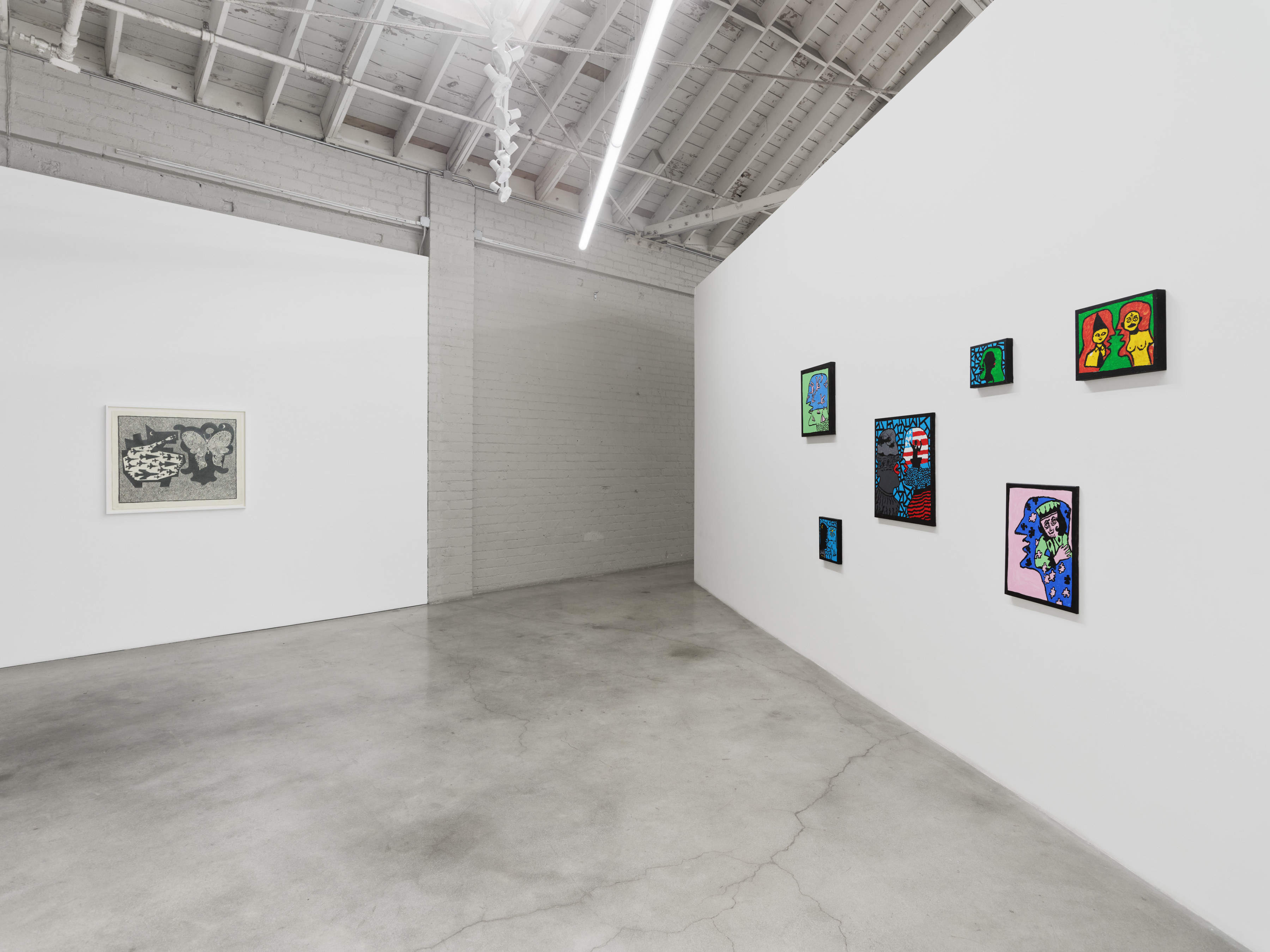
Derek Boshier, Strange Lands, installation view, 2024
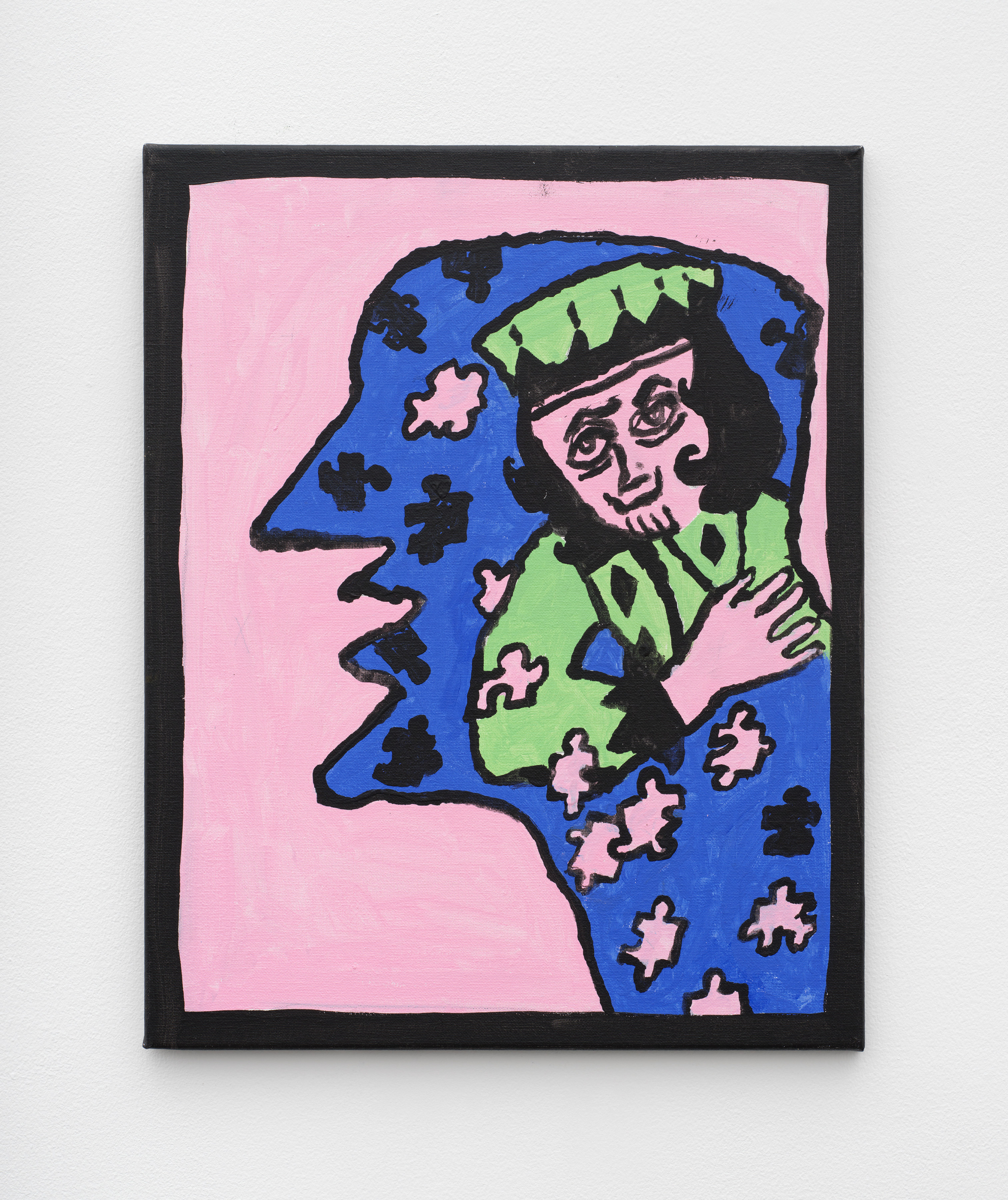
Derek Boshier, The King of Diamonds, 2024
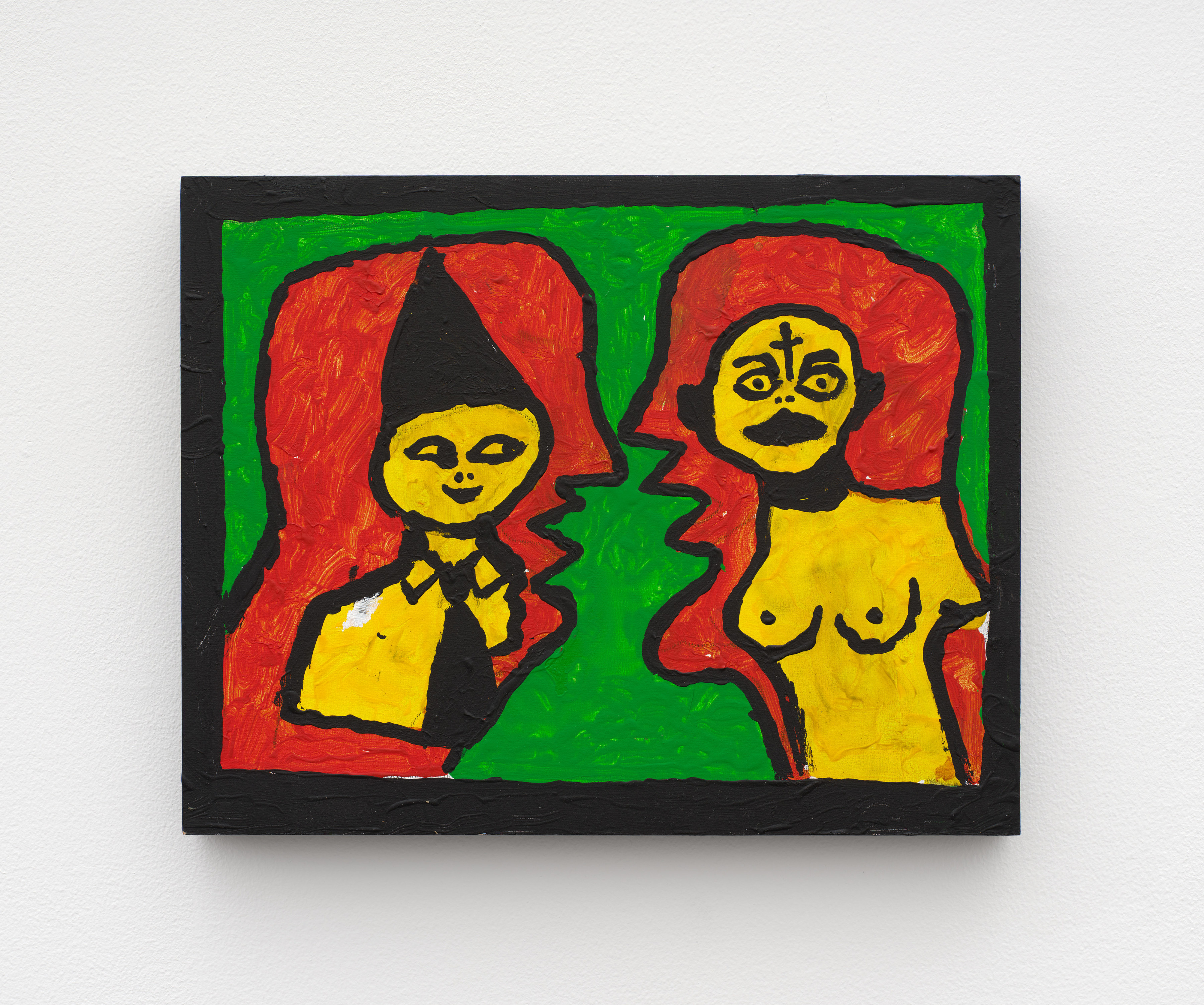
Derek Boshier, The Conversation Remembering School Days, 2023
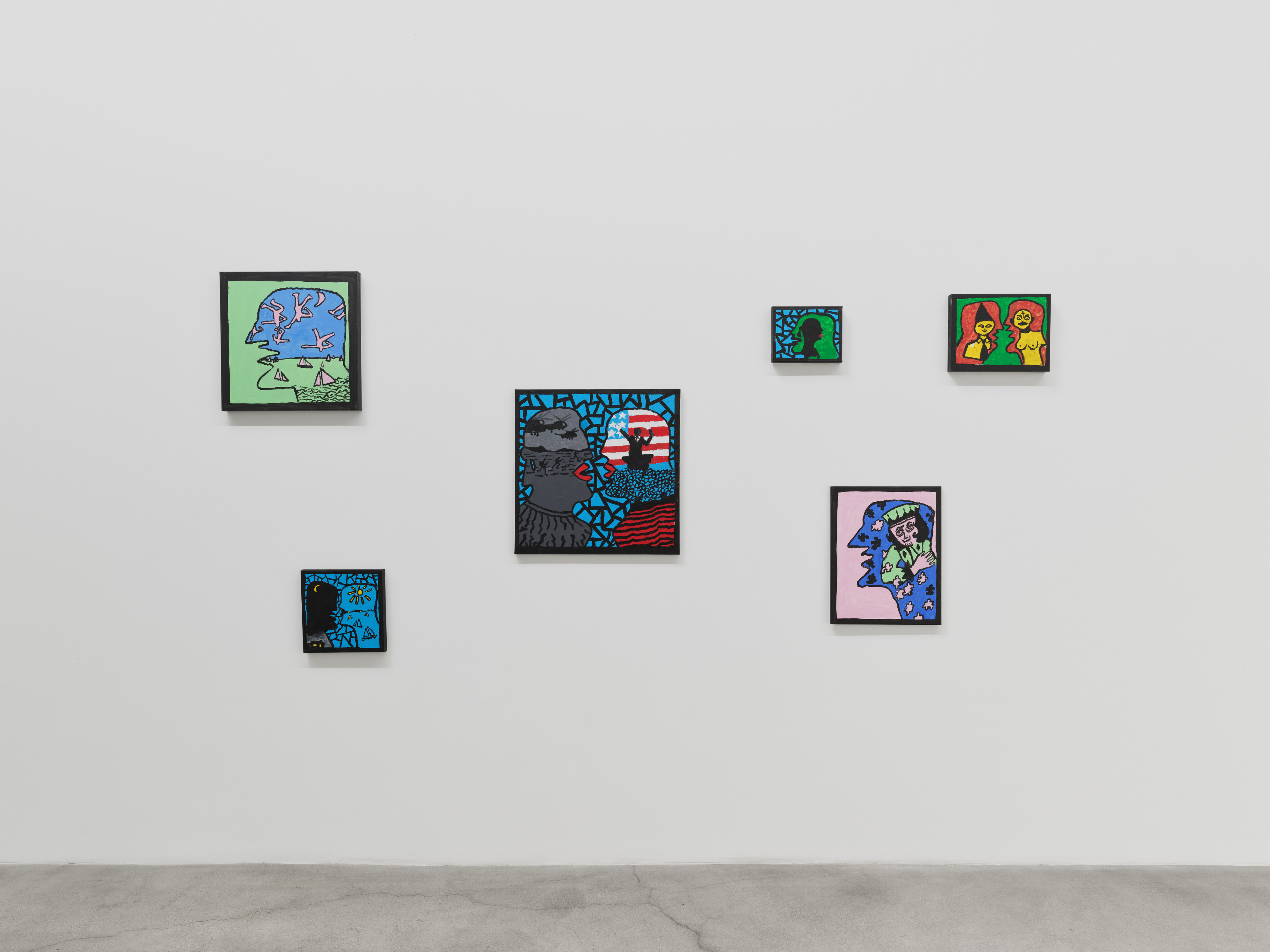
Derek Boshier, Strange Lands, installation view, 2024
A decade ago, in his foreword to Derek Boshier’s monograph, Rethink/Re-entry, David Hockney remarked of his former classmate that he is an artist “who has never lost his sense of wonder at the world.” In Strange Lands, Boshier’s insatiable curiosity, fierce imagination, and dynamism of spirit radiate. Boshier is a true alchemist of images.
—Barry Blinderman
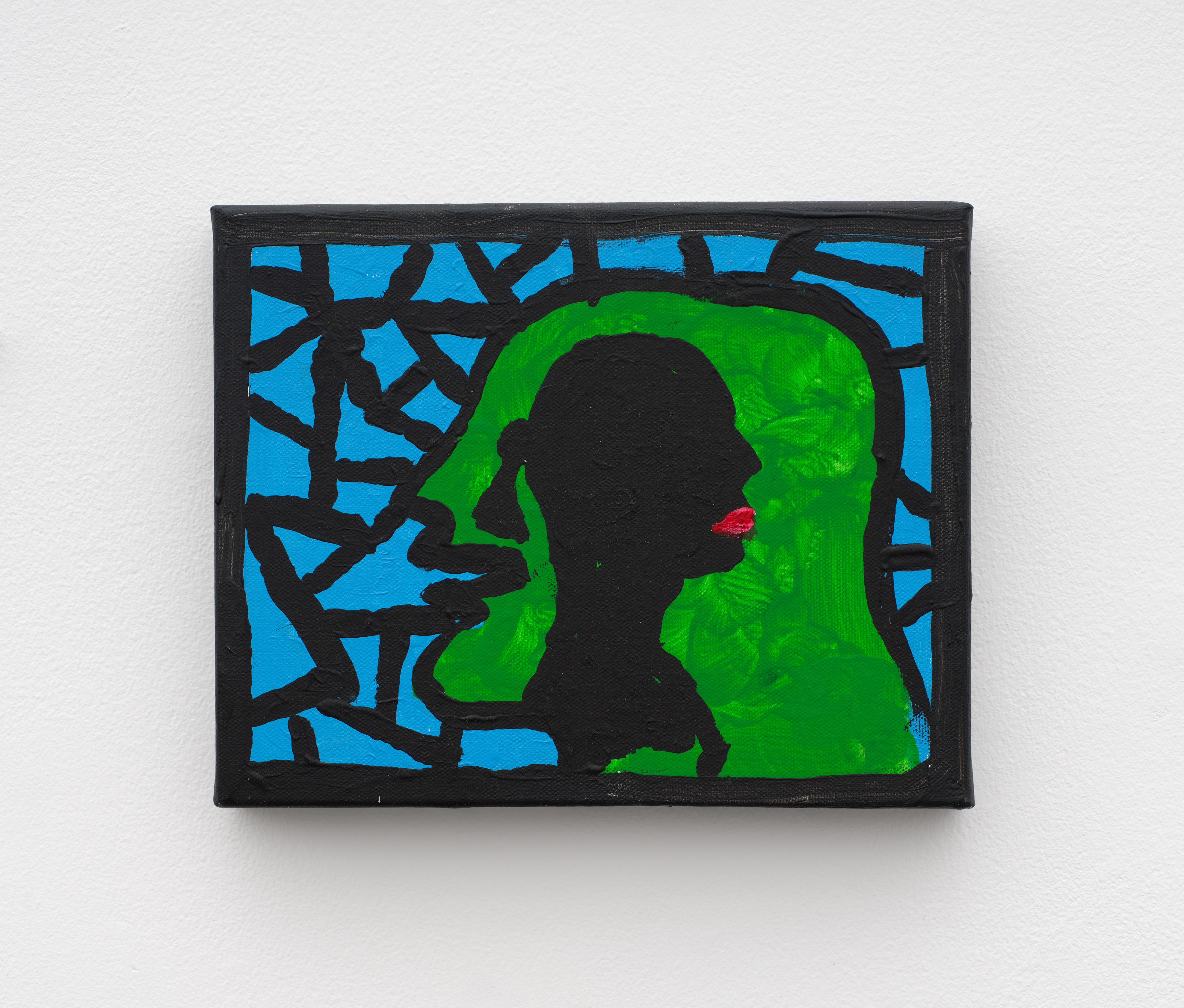
Derek Boshier, The Conversation #3, 2023
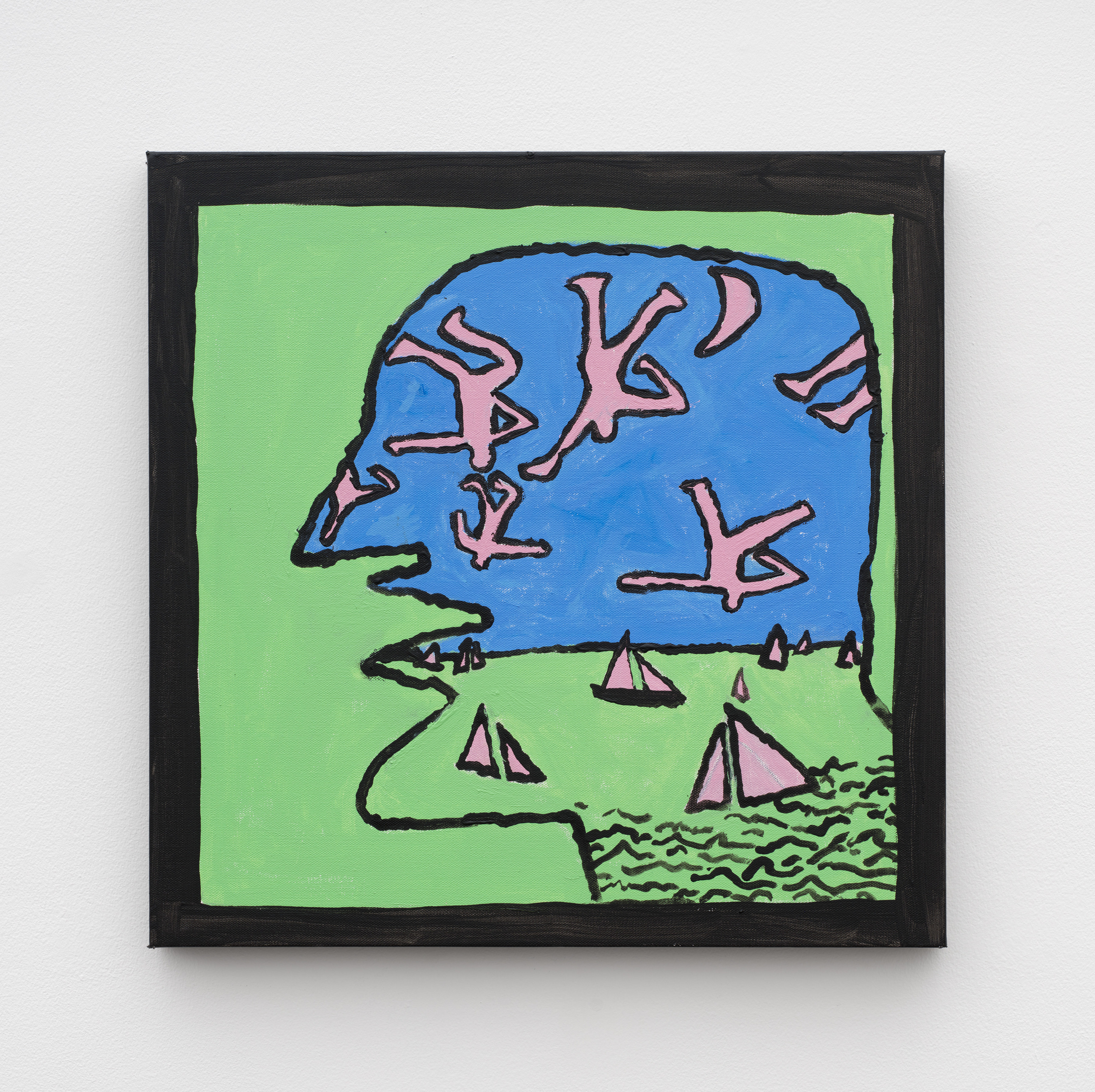
Derek Boshier, Man Thinking About Falling Figures, 2024
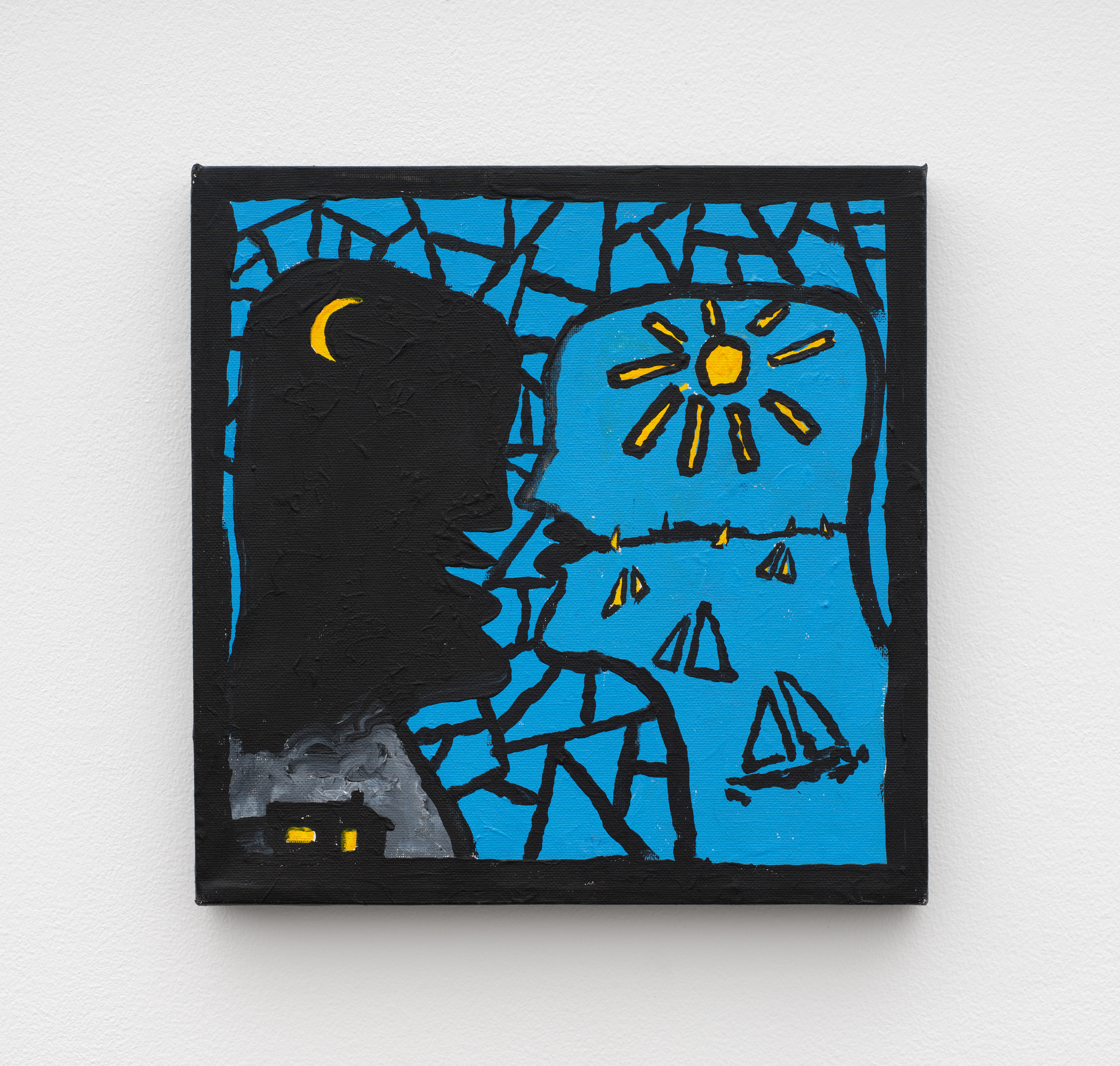
Derek Boshier, The Conversation #2, 2023
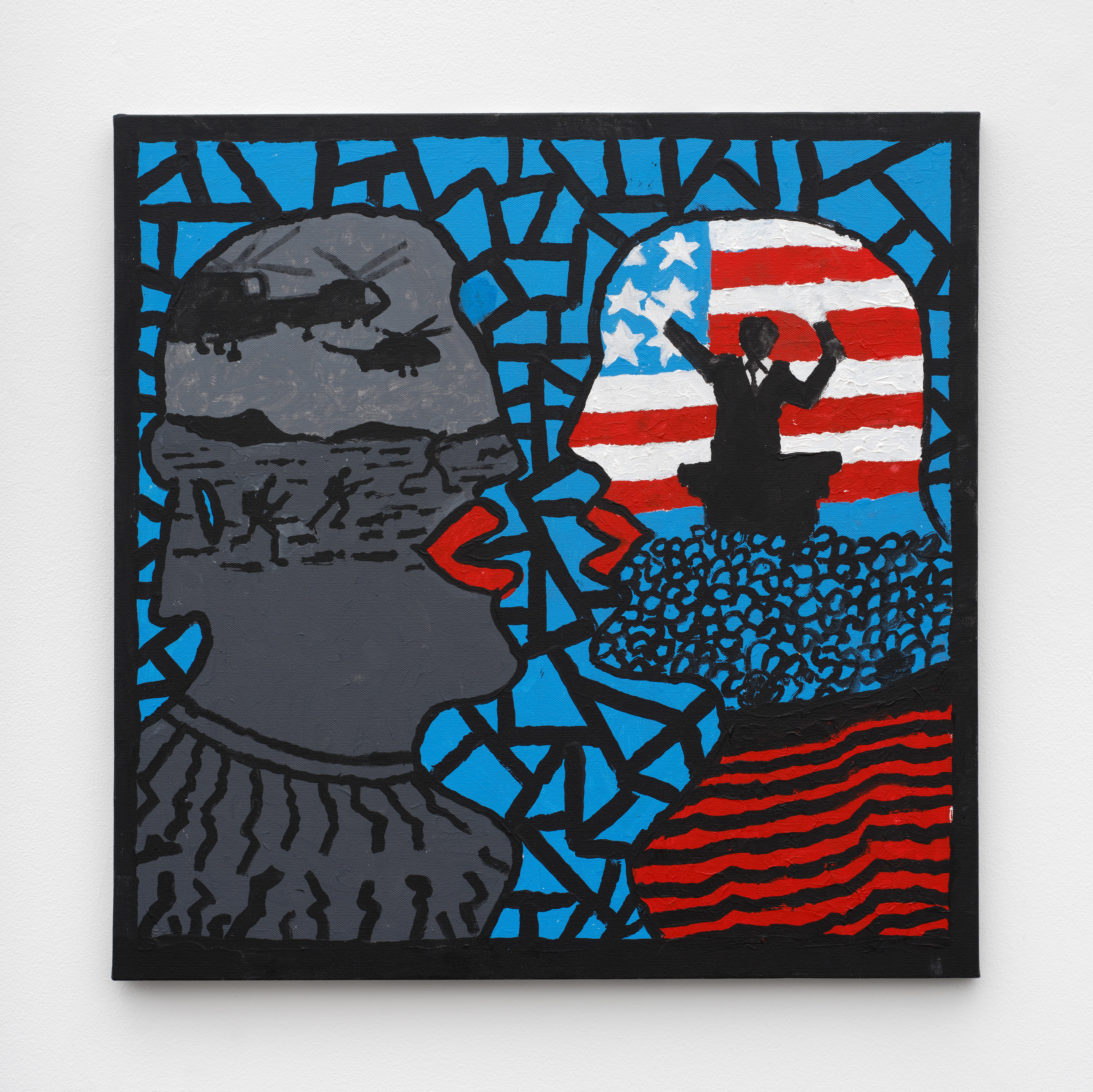
Derek Boshier, The Conversation #1, 2023
Derek Boshier (b. 1937, Portsmouth, United Kingdom) began his career exhibiting in London in the 1960’s after graduating in 1962 from the Royal College of Art, where he studied alongside fellow Pop Artists David Hockney and RB Kitaj. Boshier has shown extensively in the U.S. and Europe, including recent solo exhibitions at Gazelli Art House, London, United Kingdom; Wolverhampton Art Gallery, Wolverhampton, United Kingdom; and City Museum of Novi Sad, Novi Sad, Serbia. His work has been acquired by The Menil, Houston, TX; The Tate Gallery of British Art and The British Museum, both London, United Kingdom; The Brooklyn Museum, New York, NY; The Centre Pompidou, Paris, France; and Nora Eccles Harrison Museum of Art, Logan, UT, among many other collections. He lives and works in Los Angeles.

